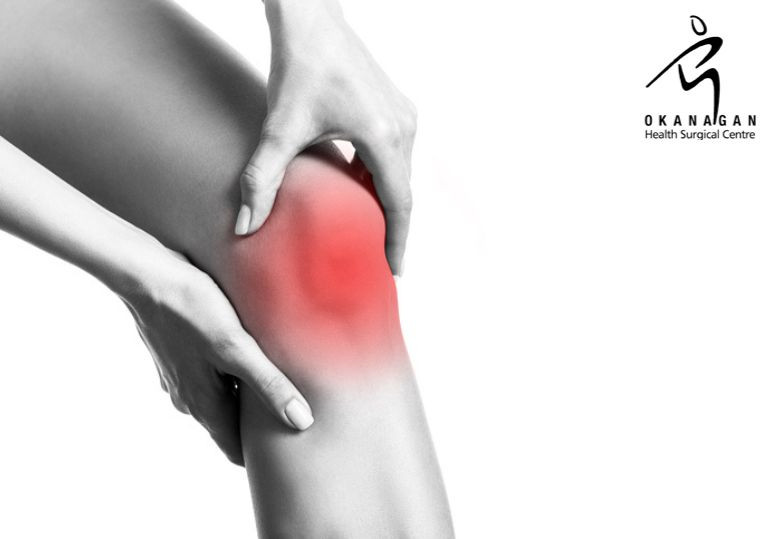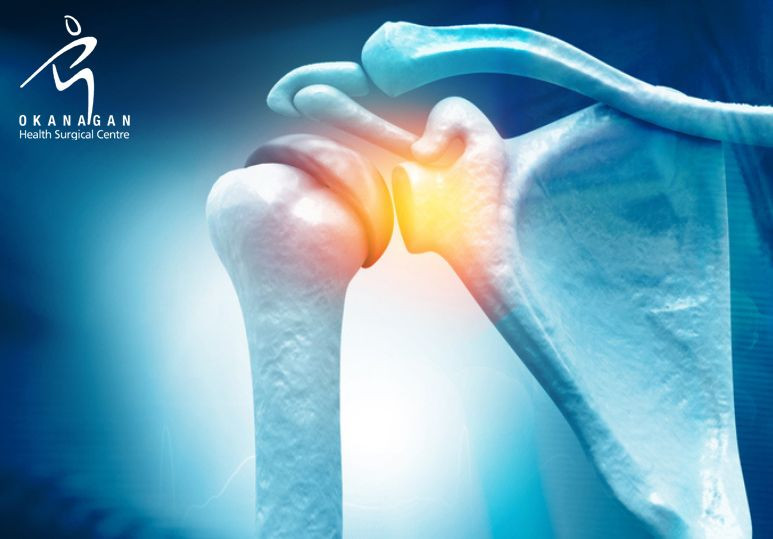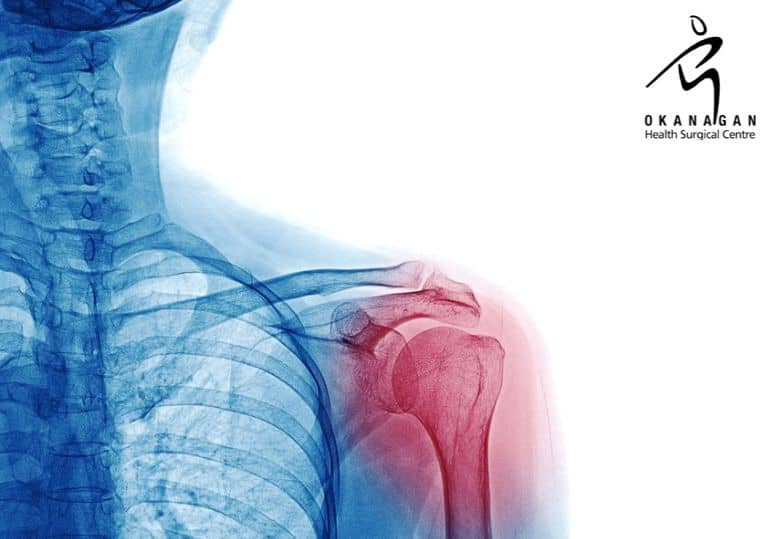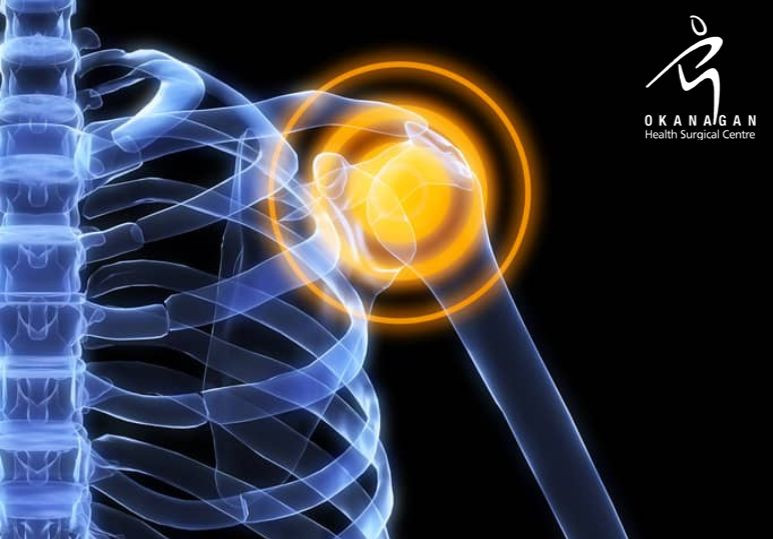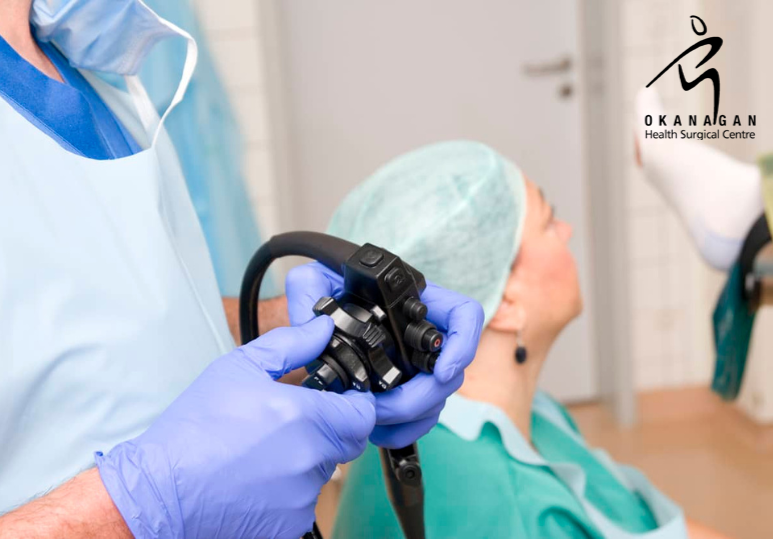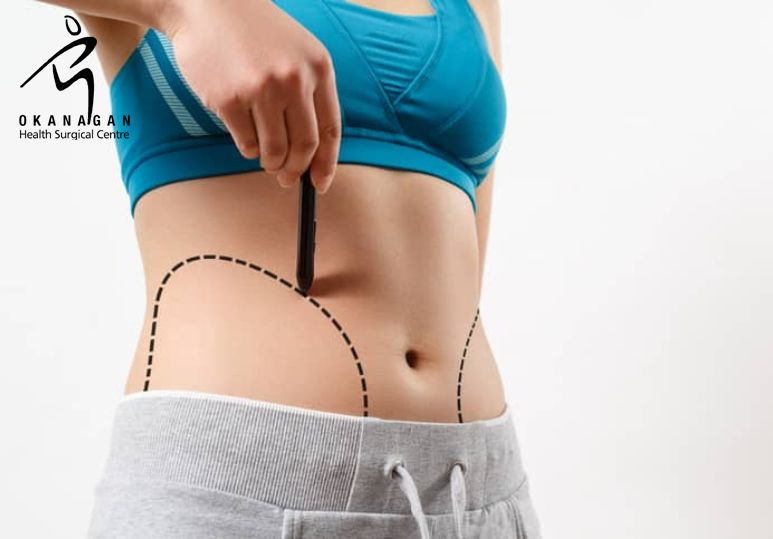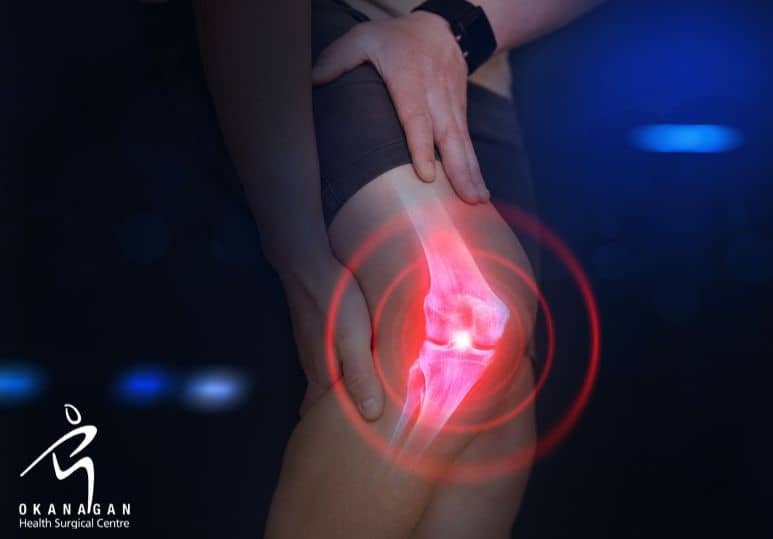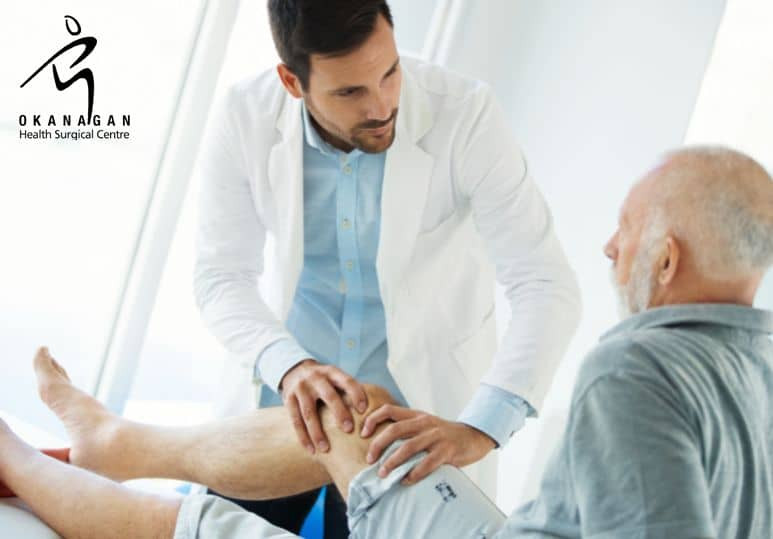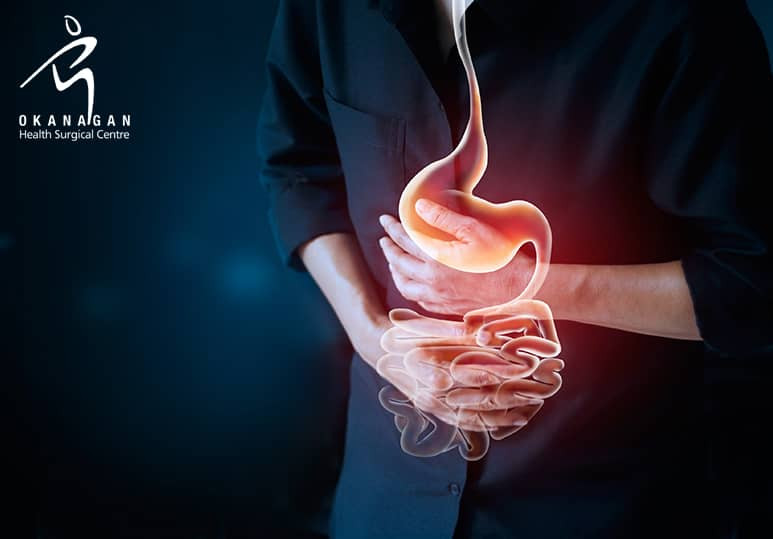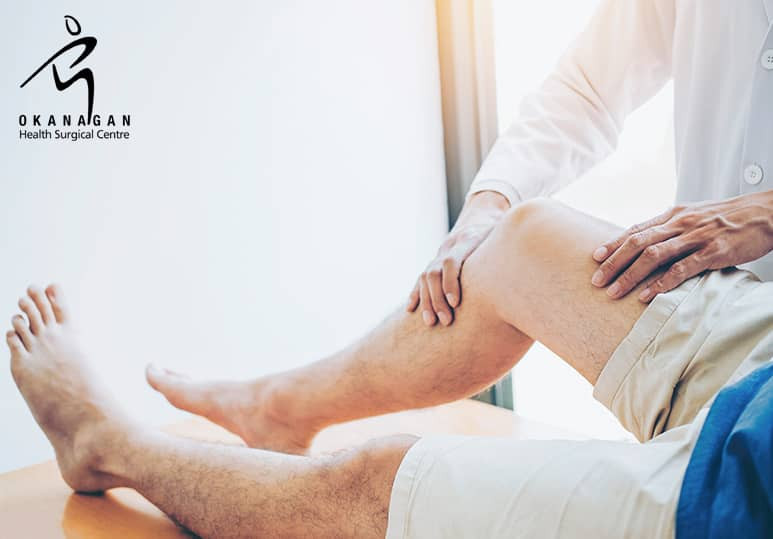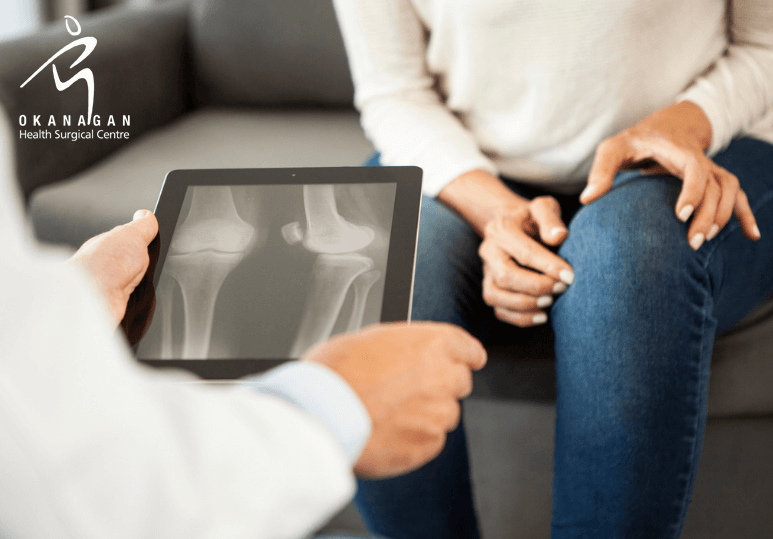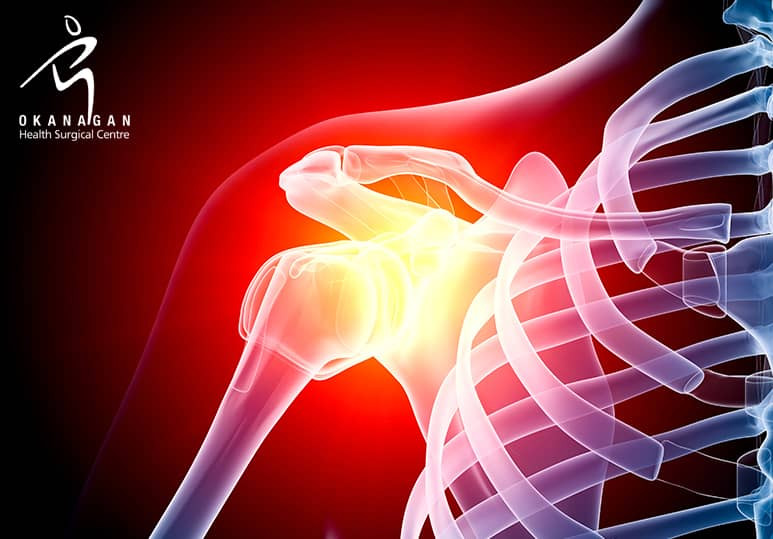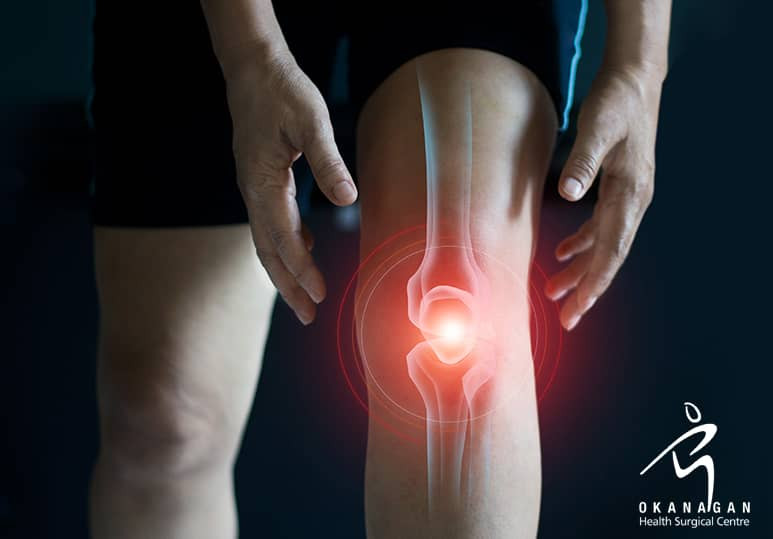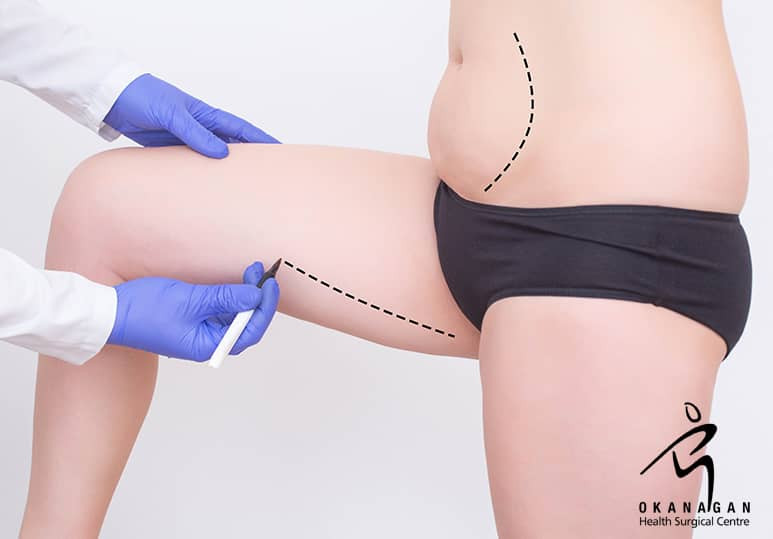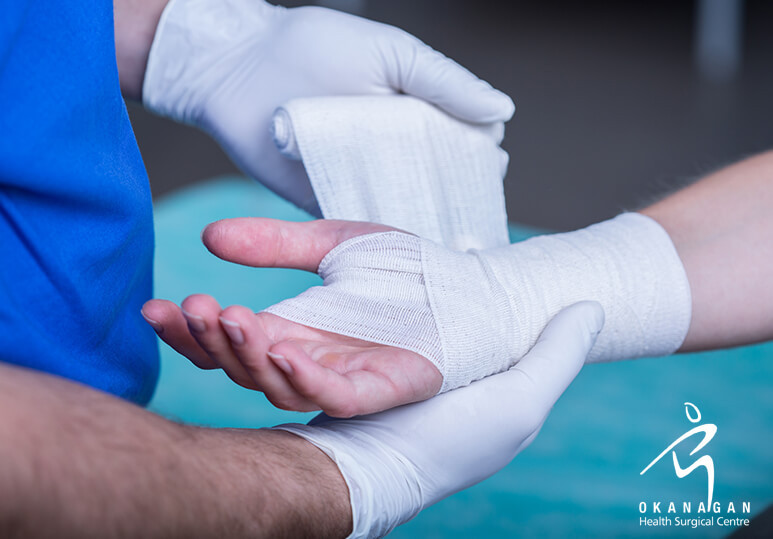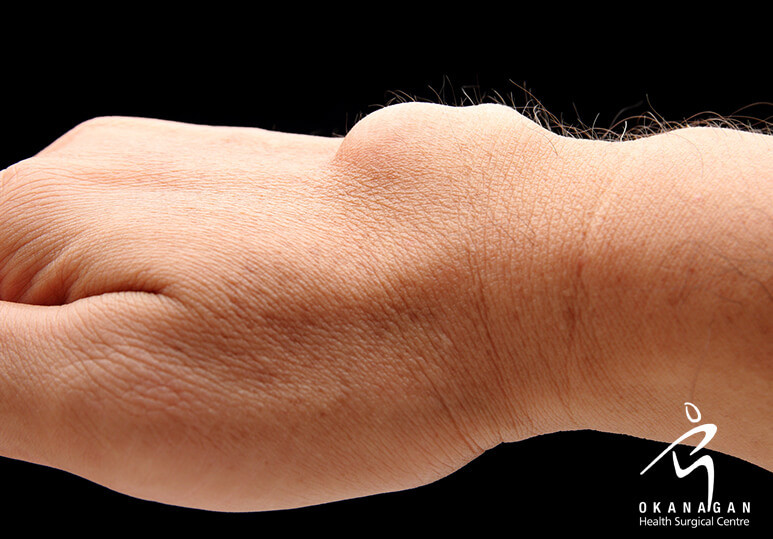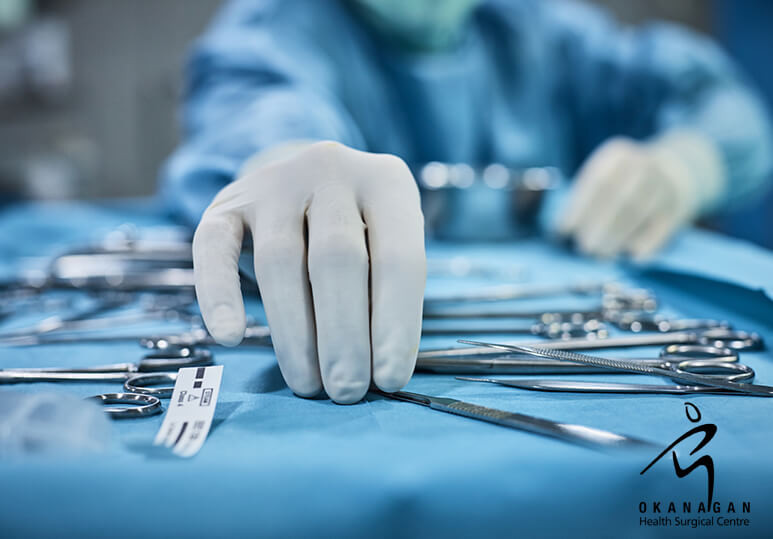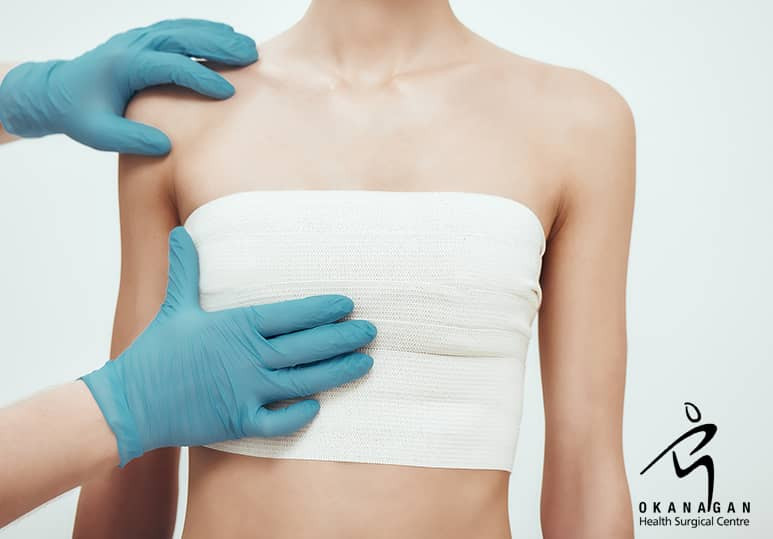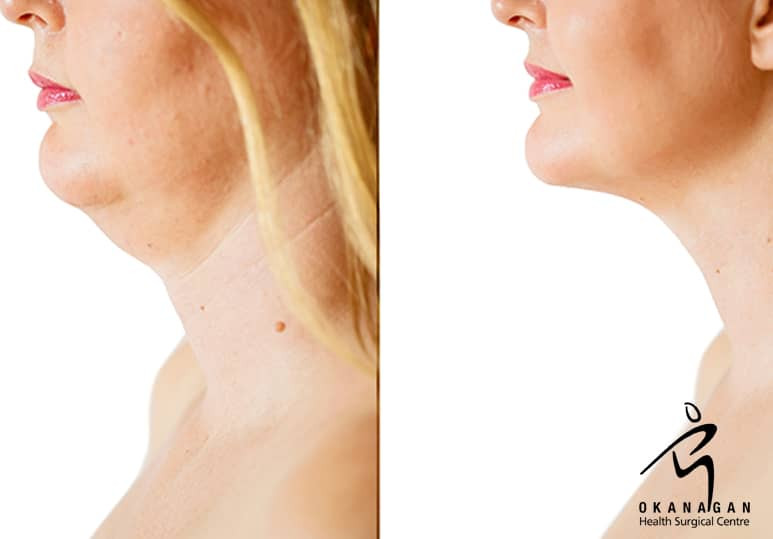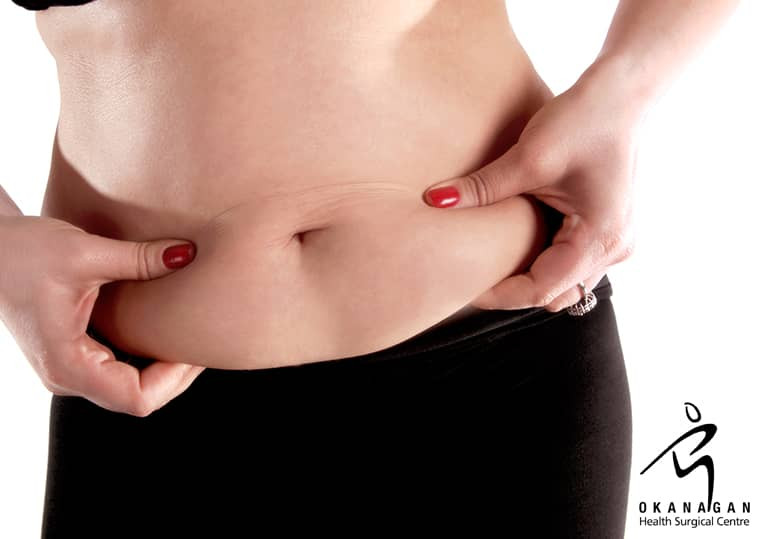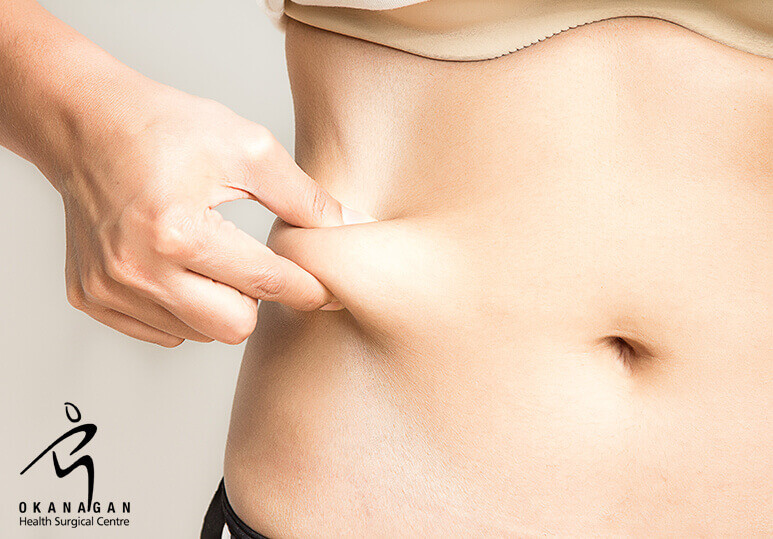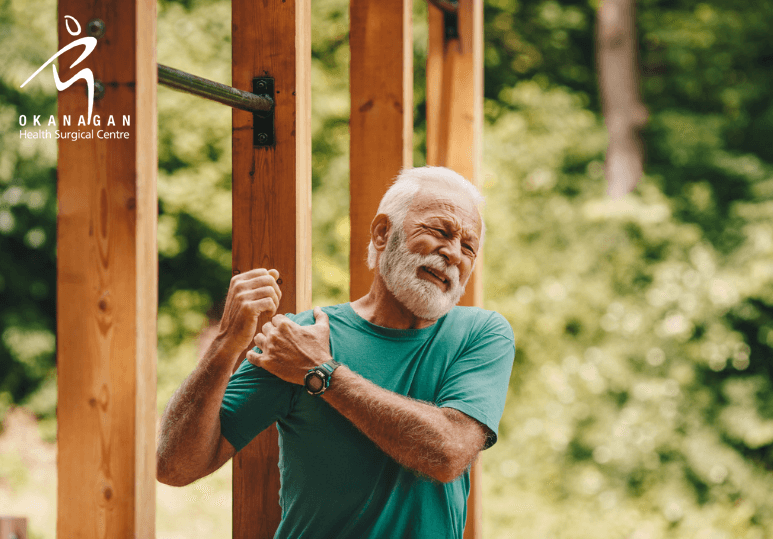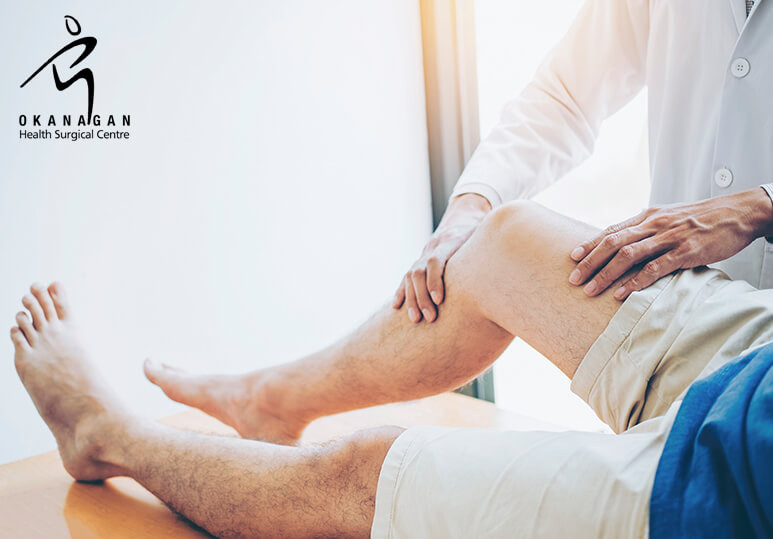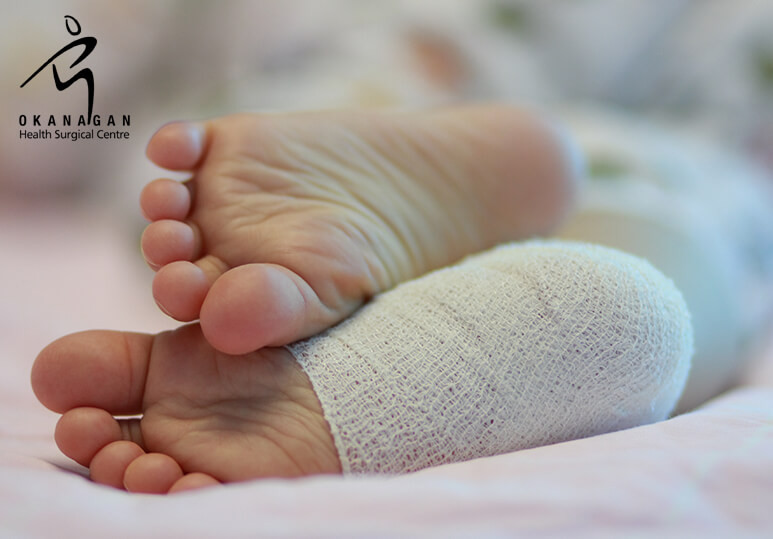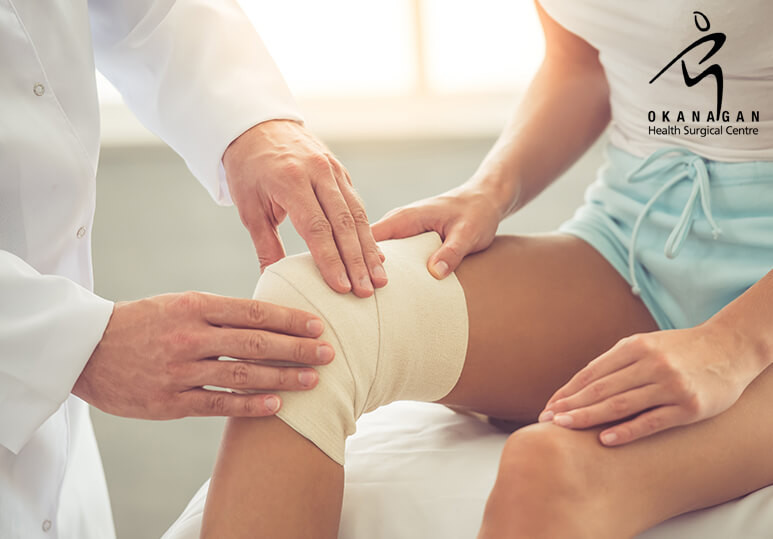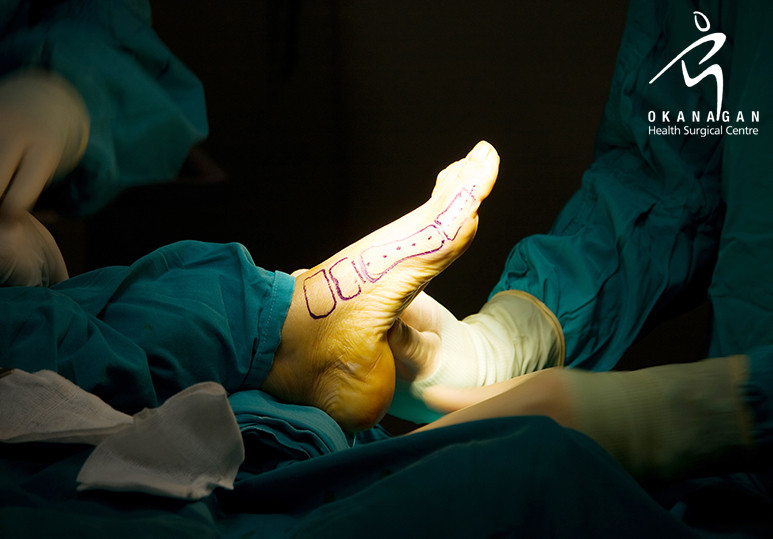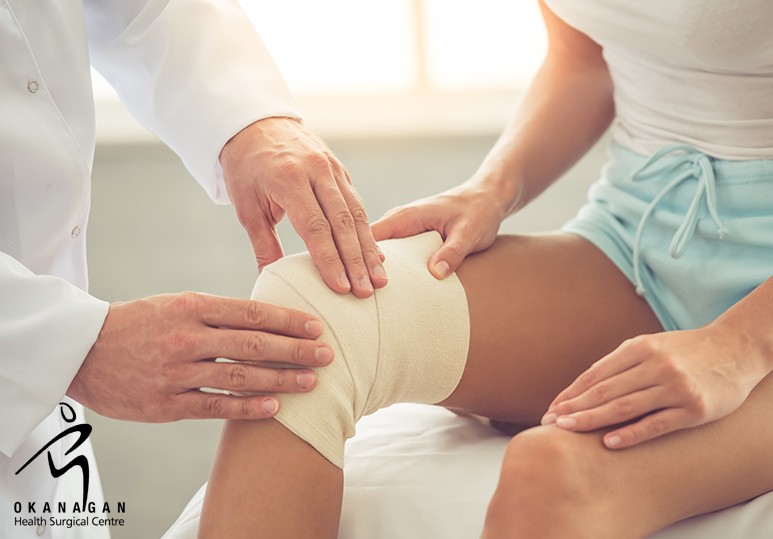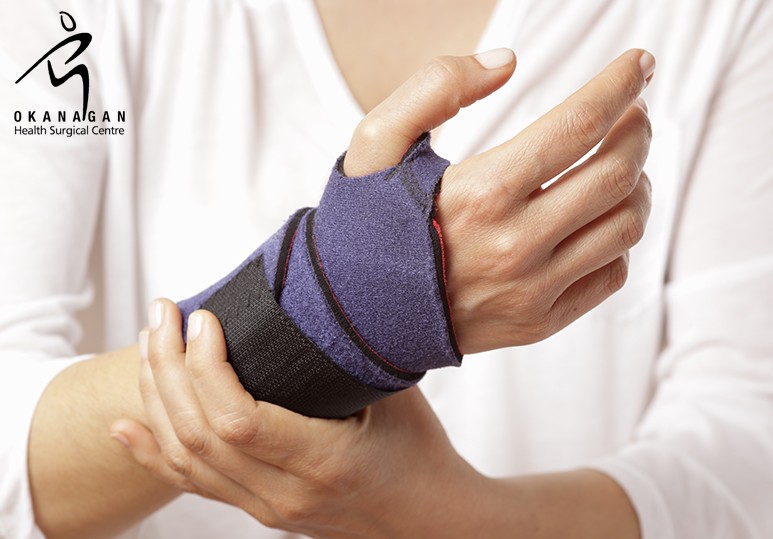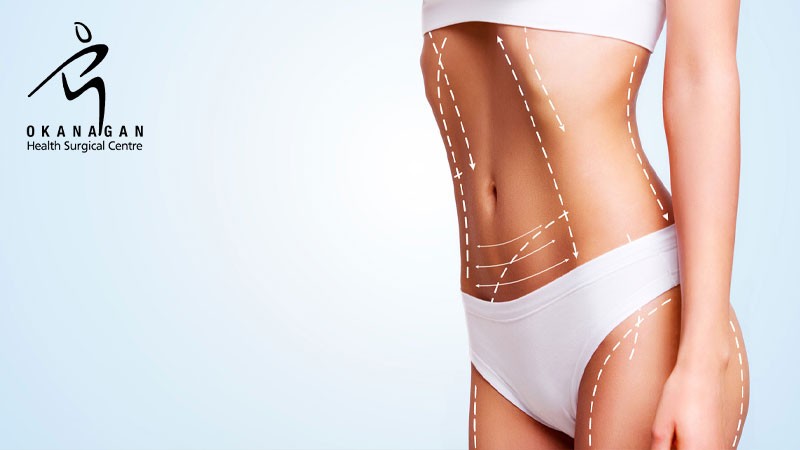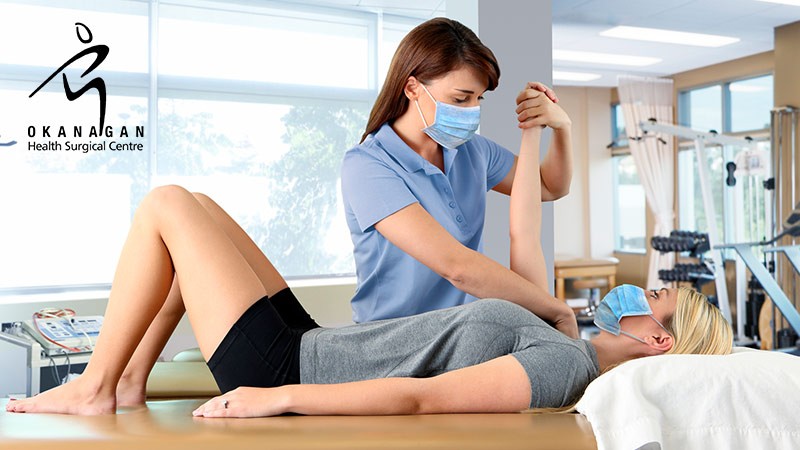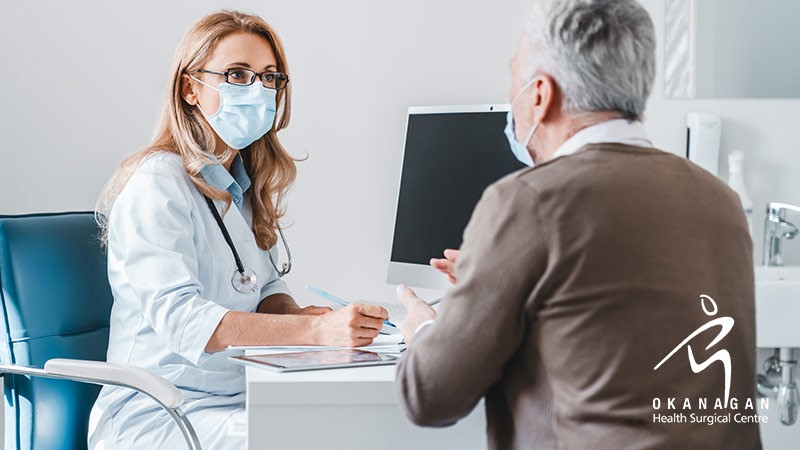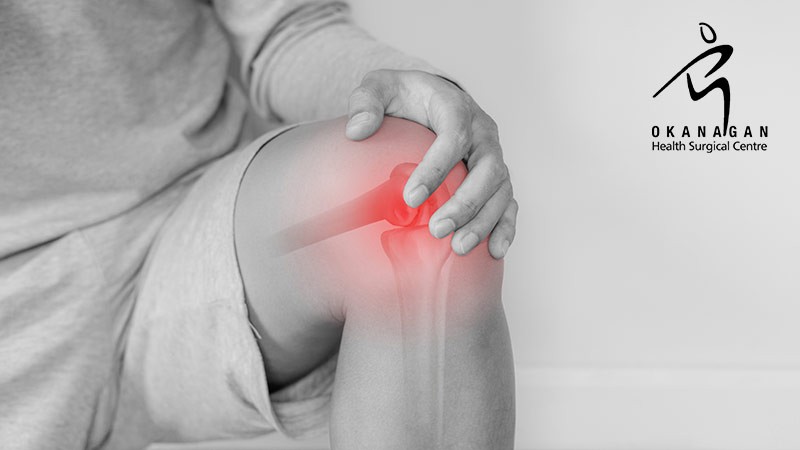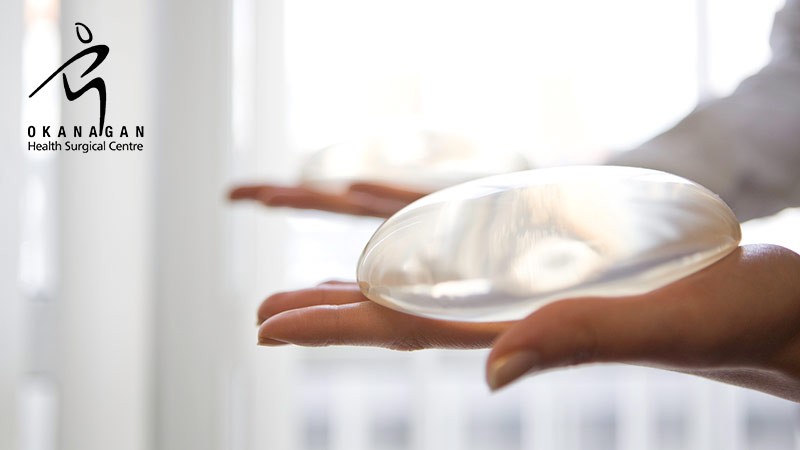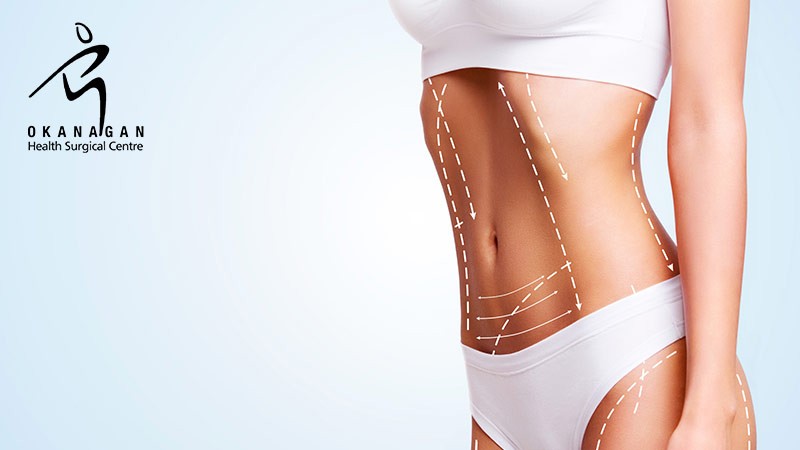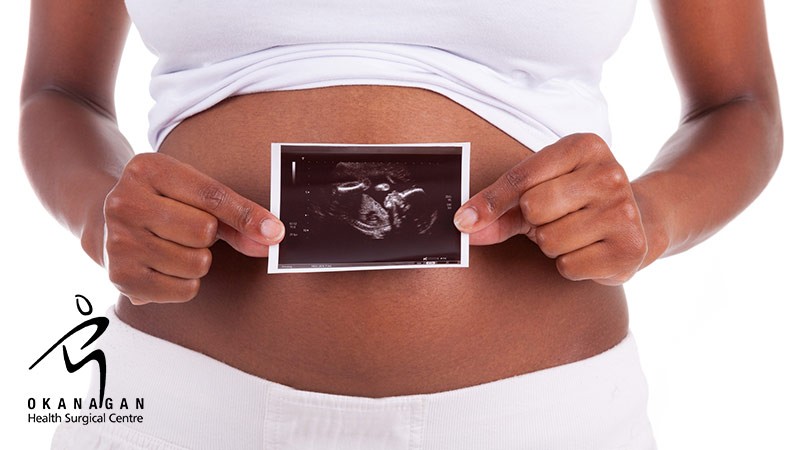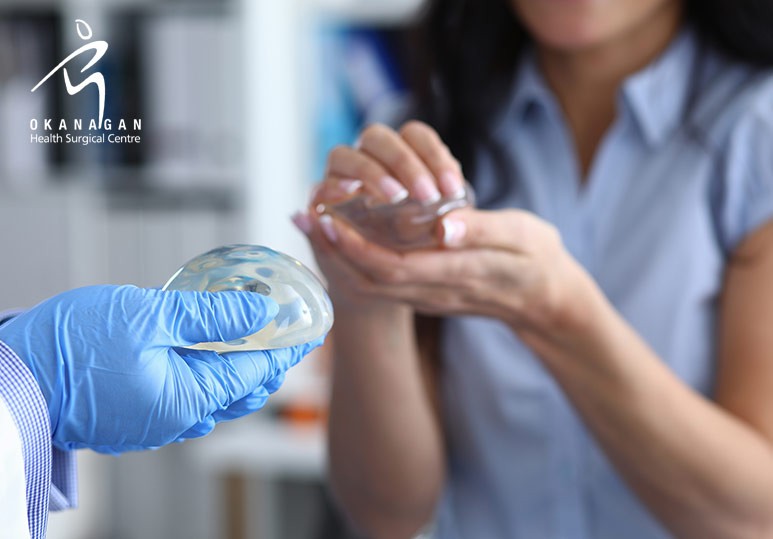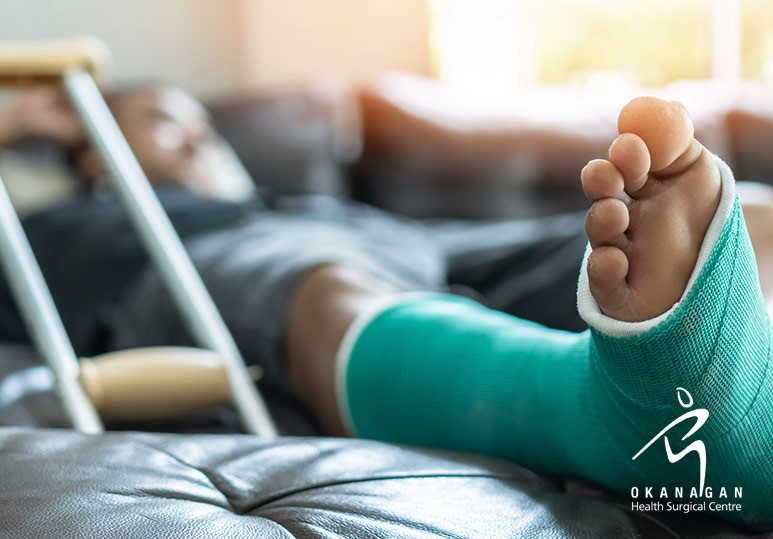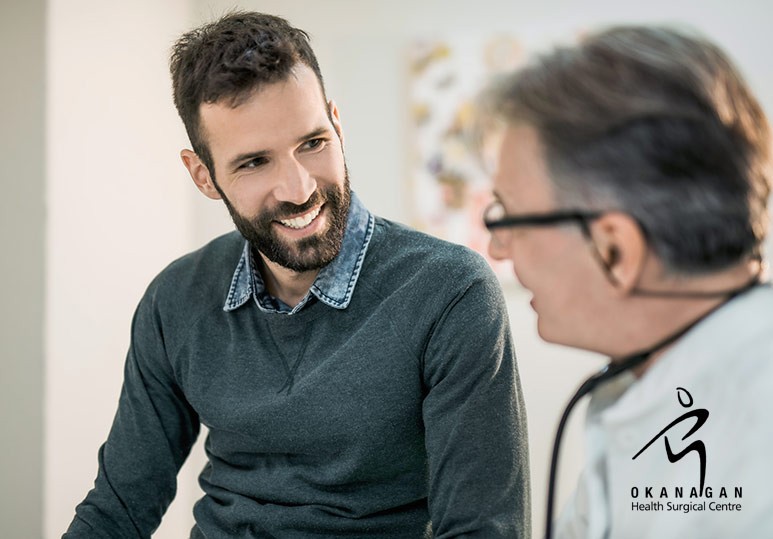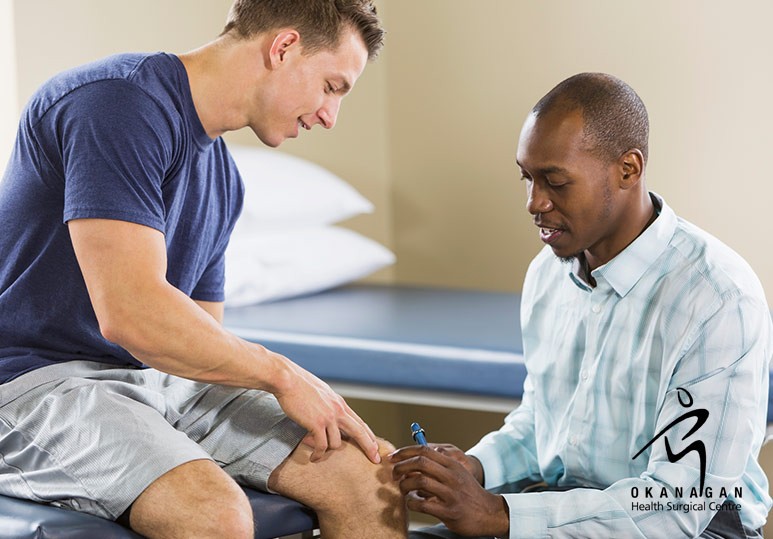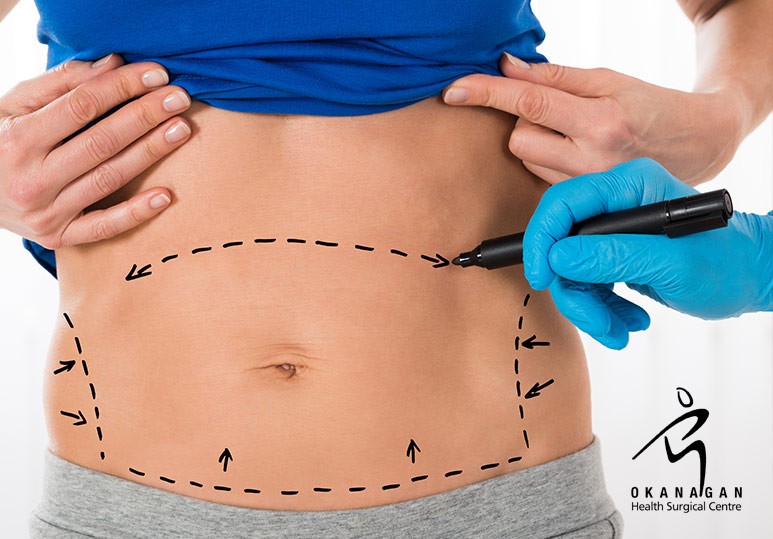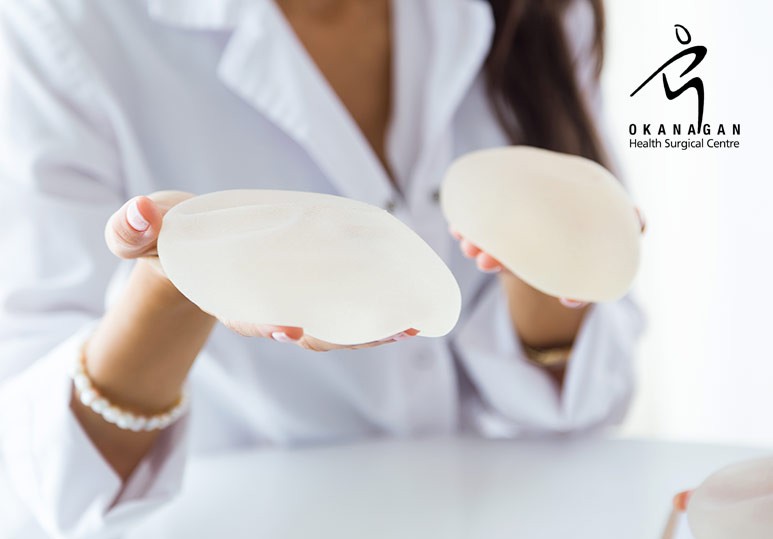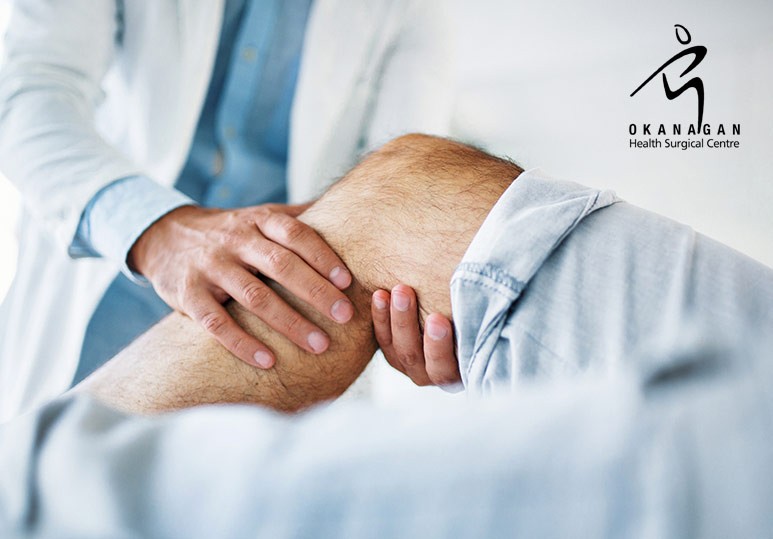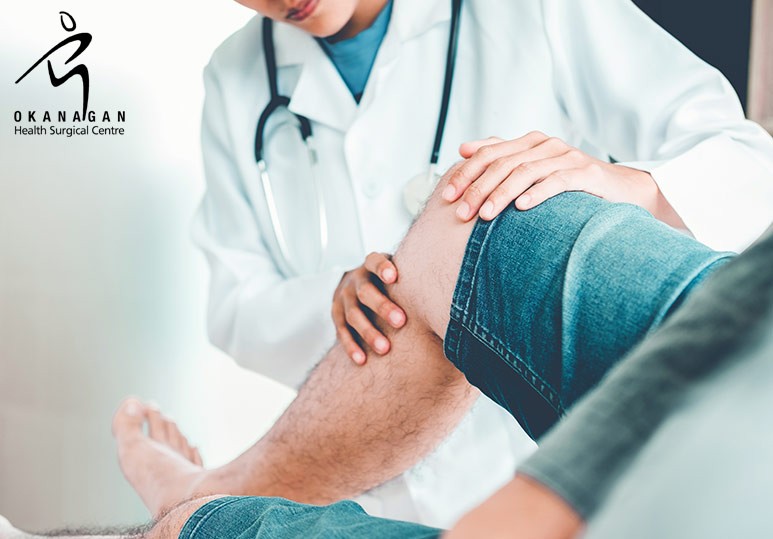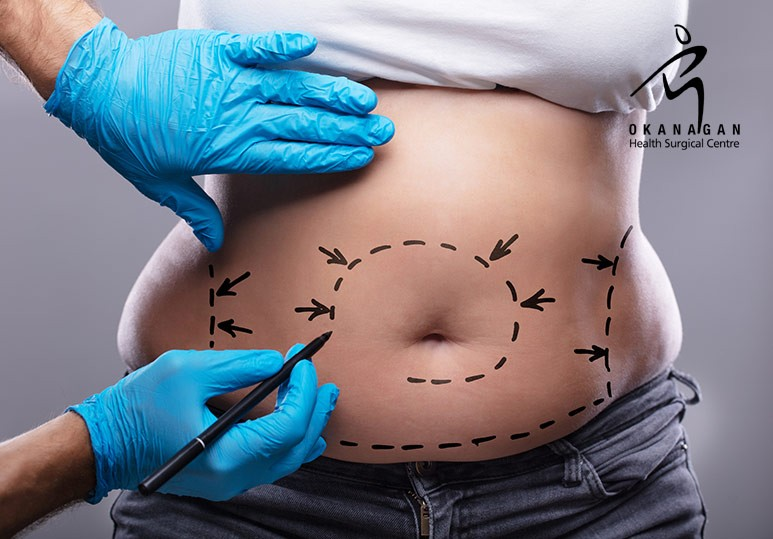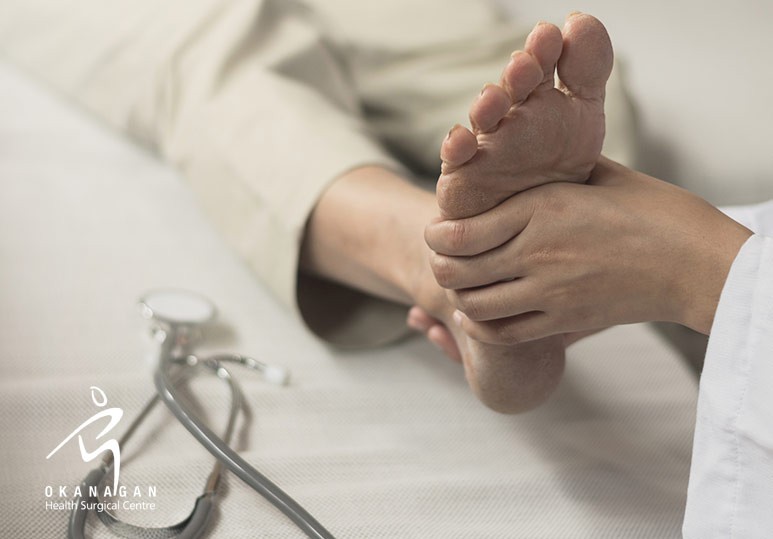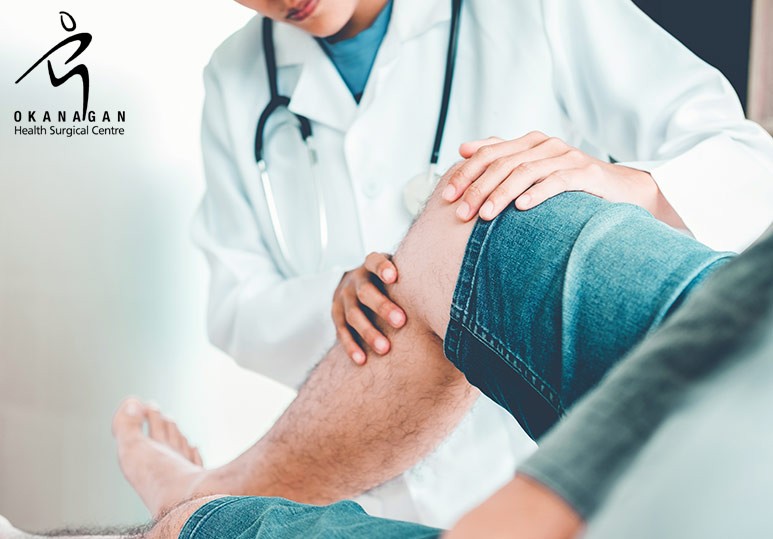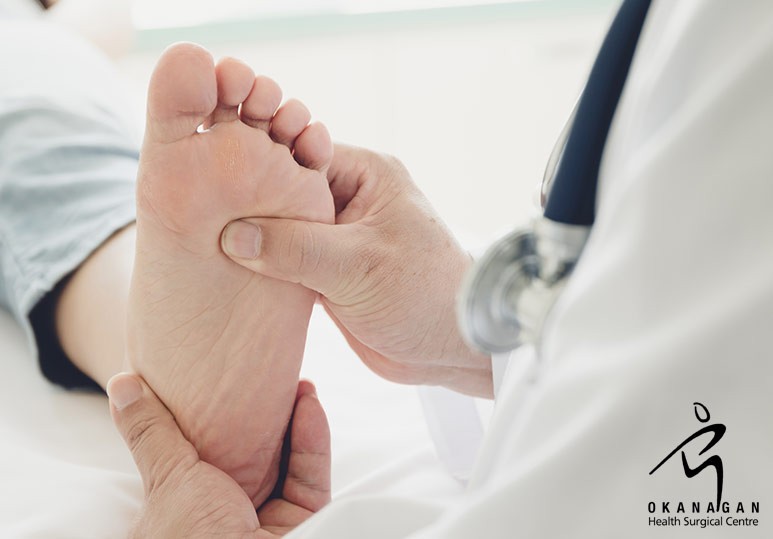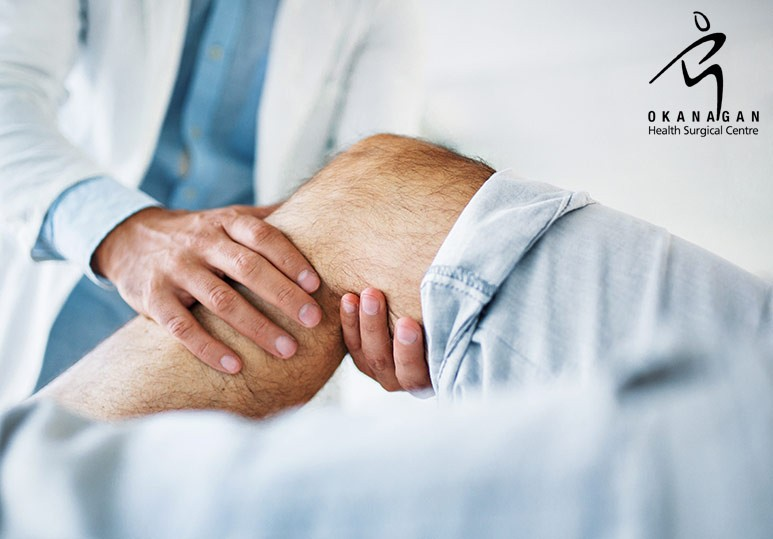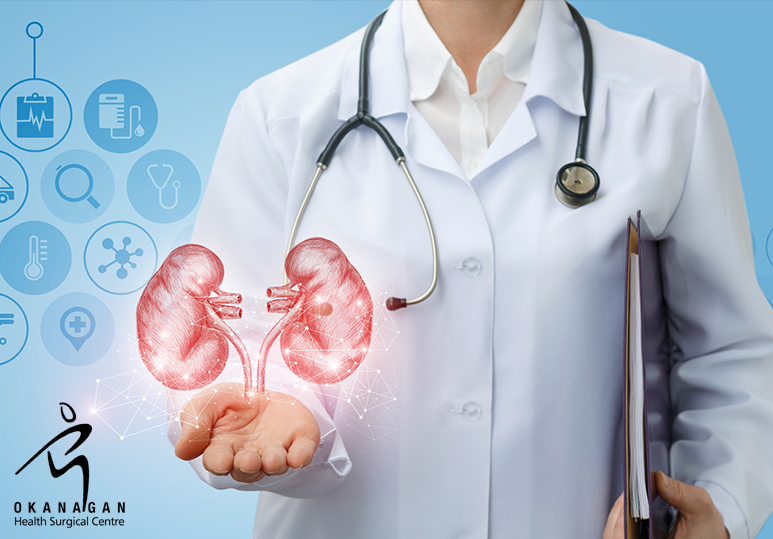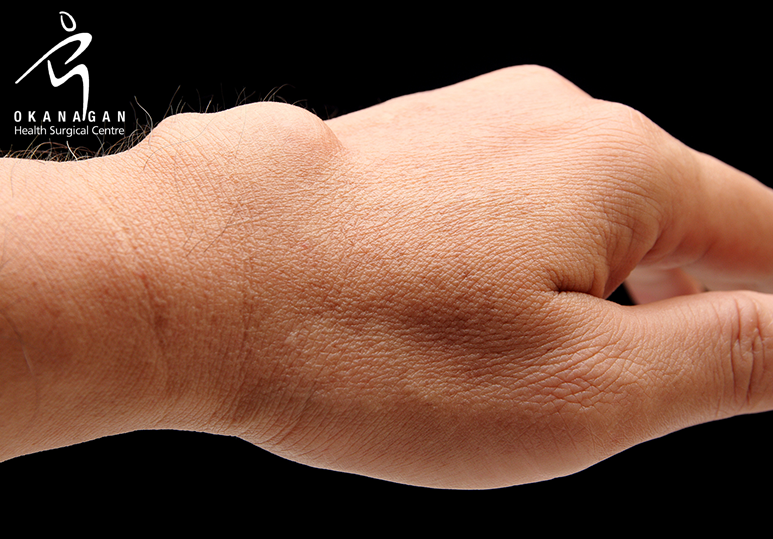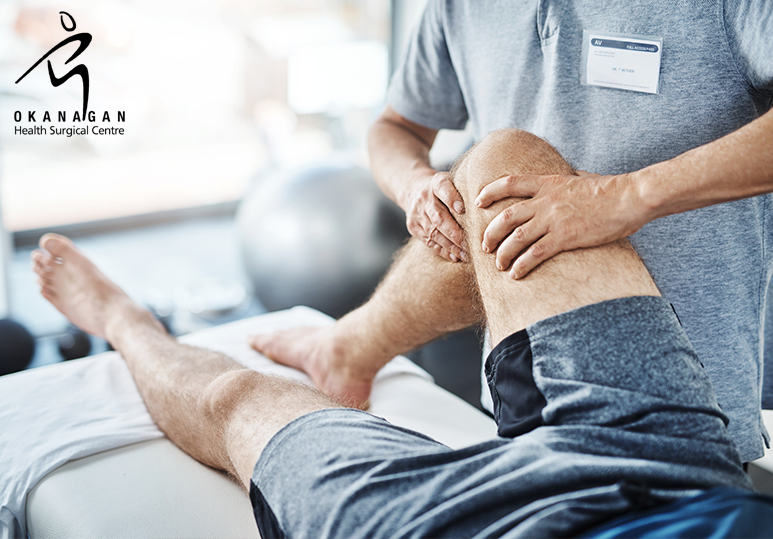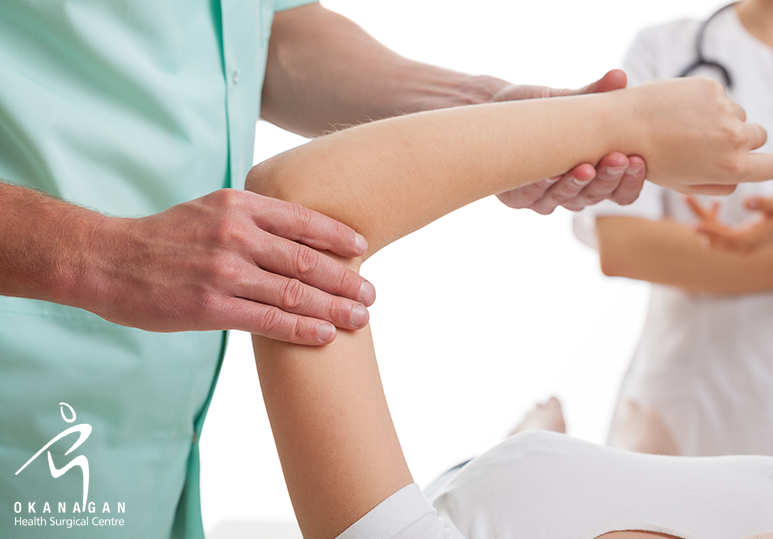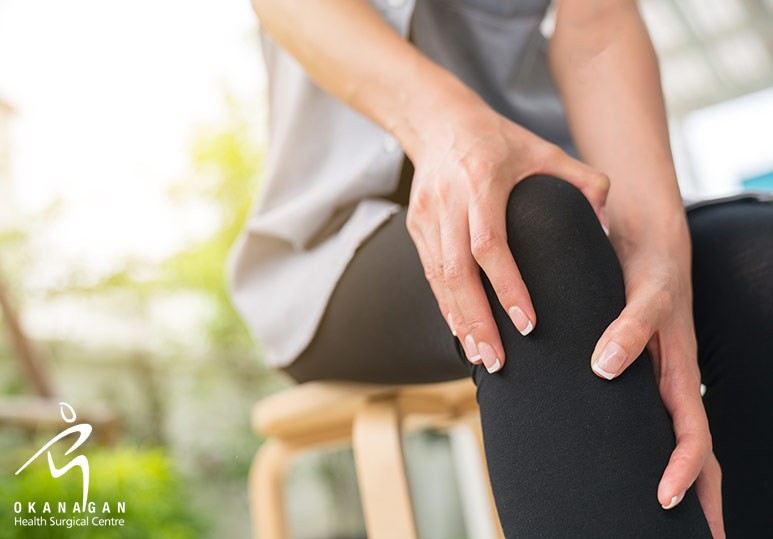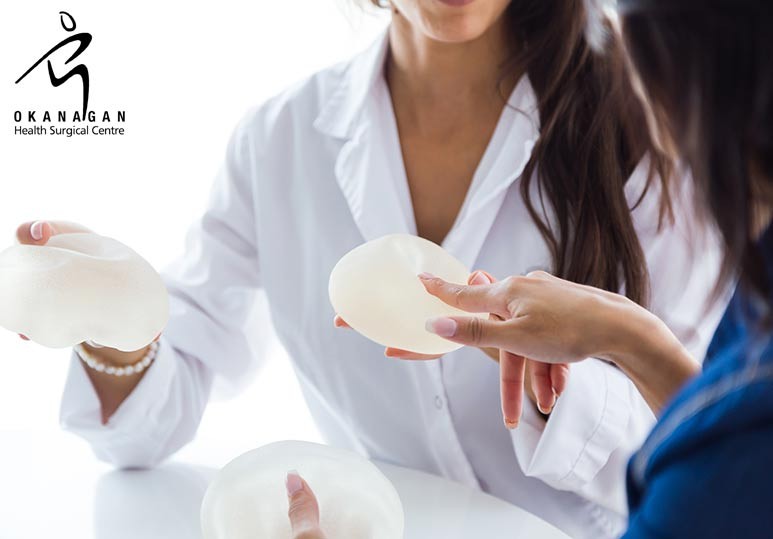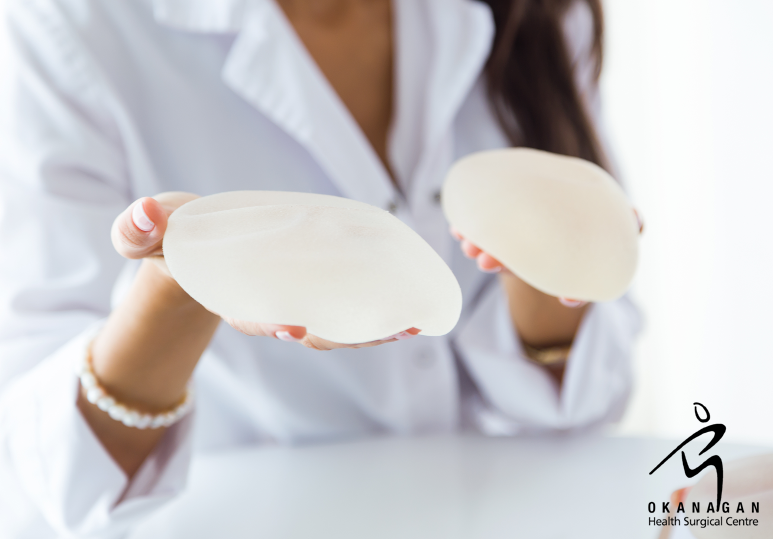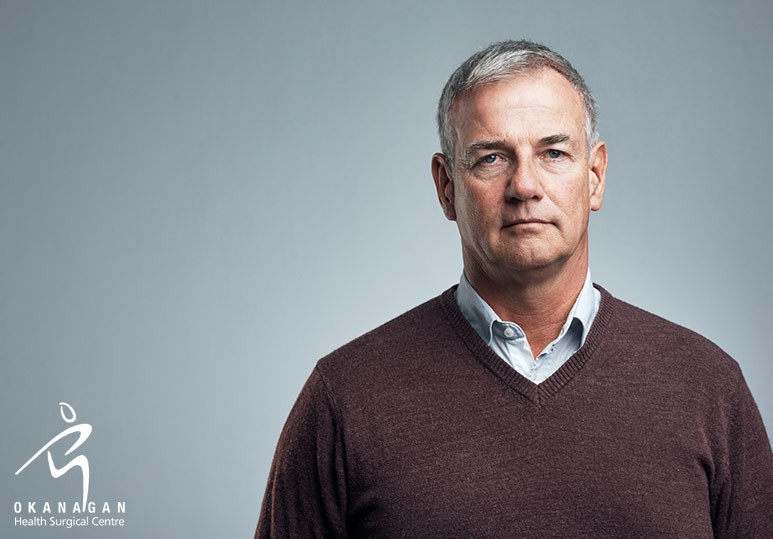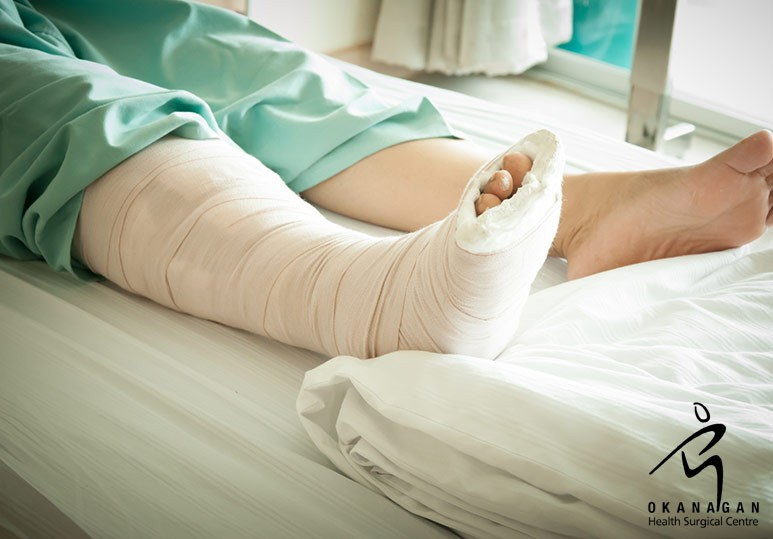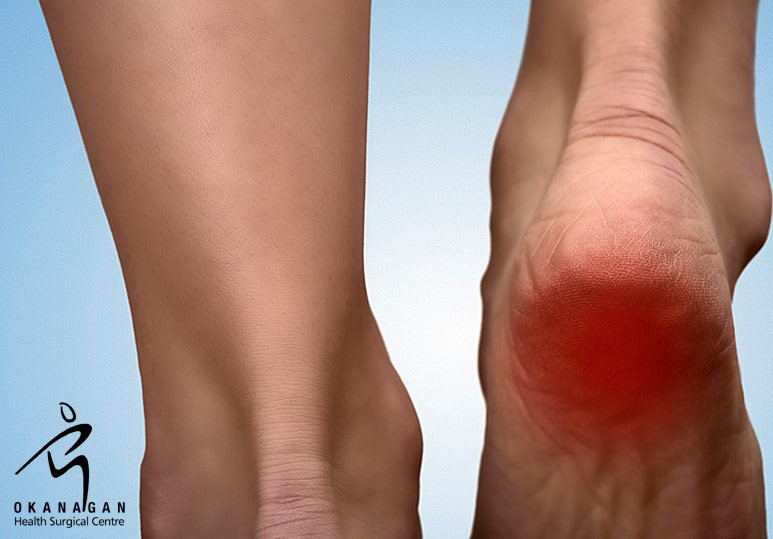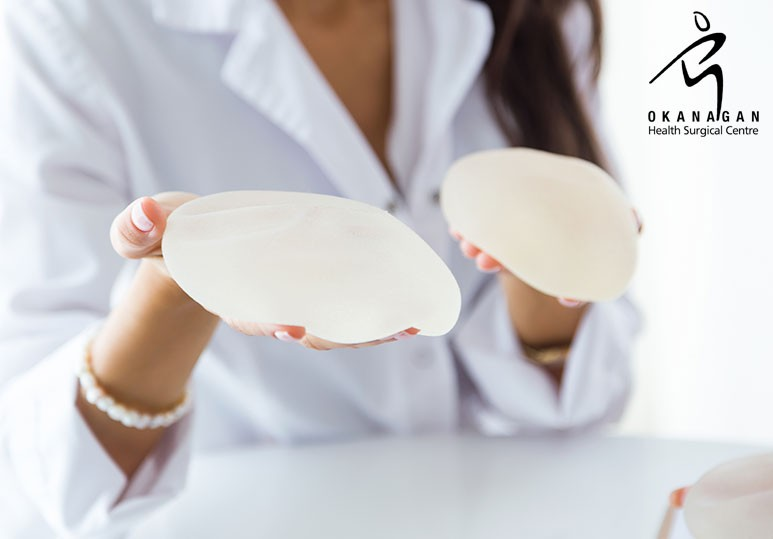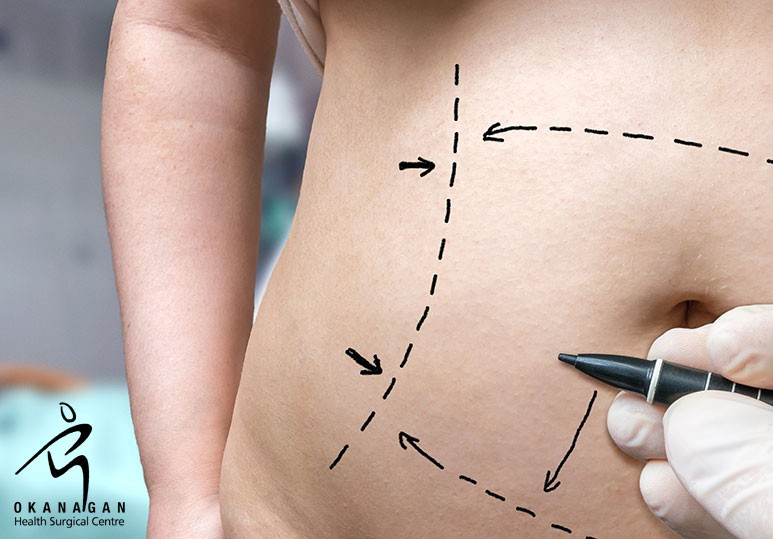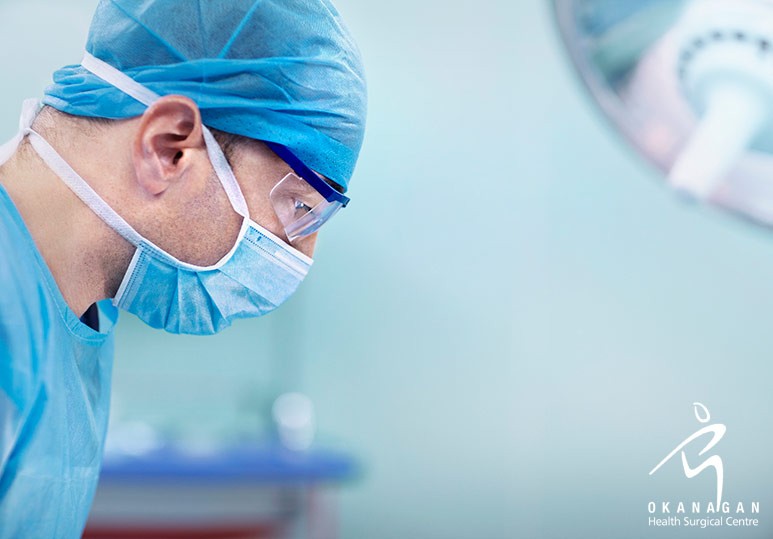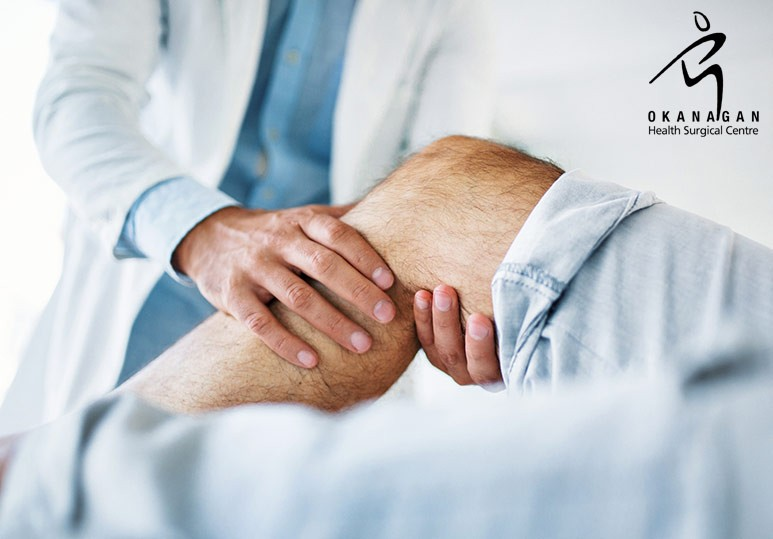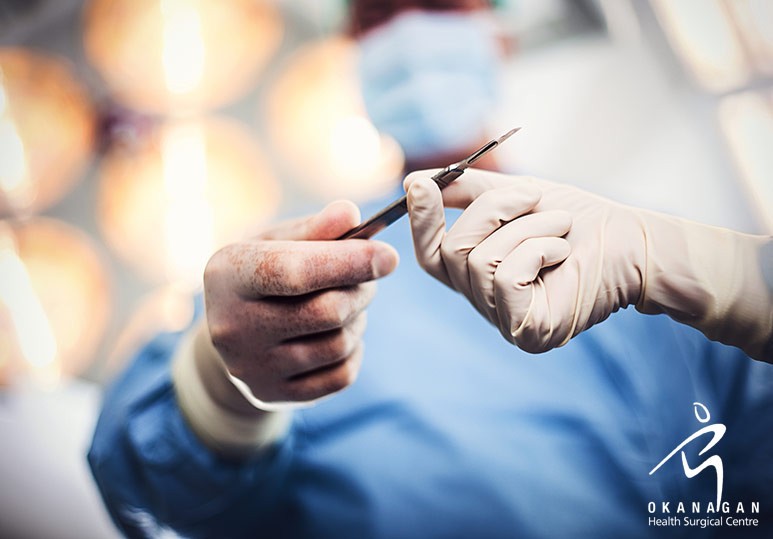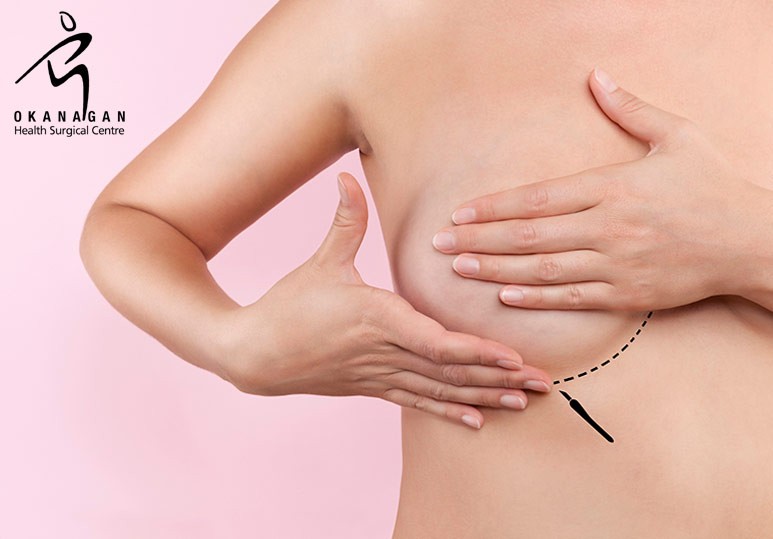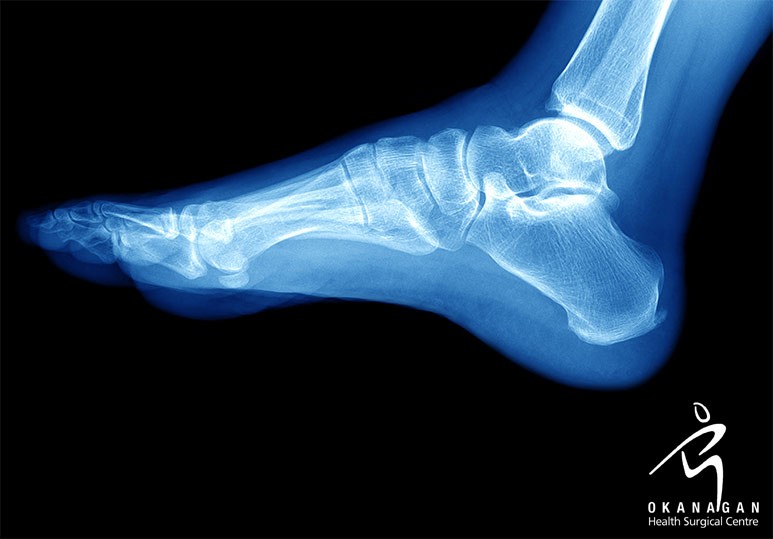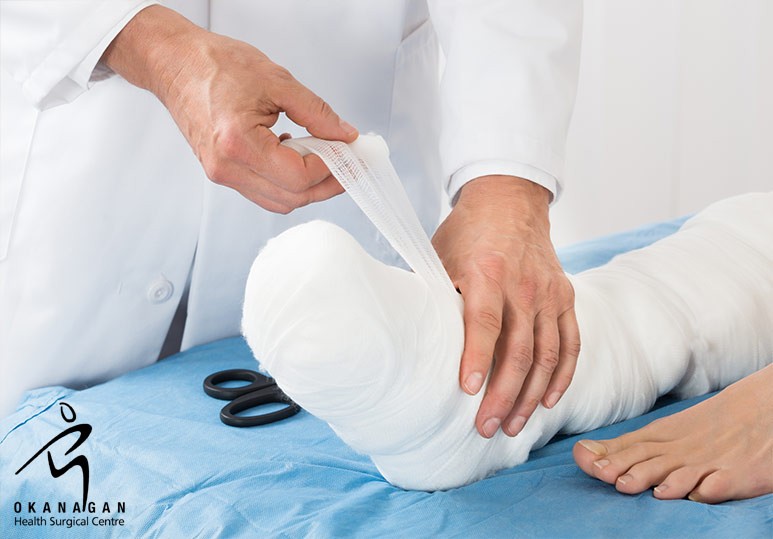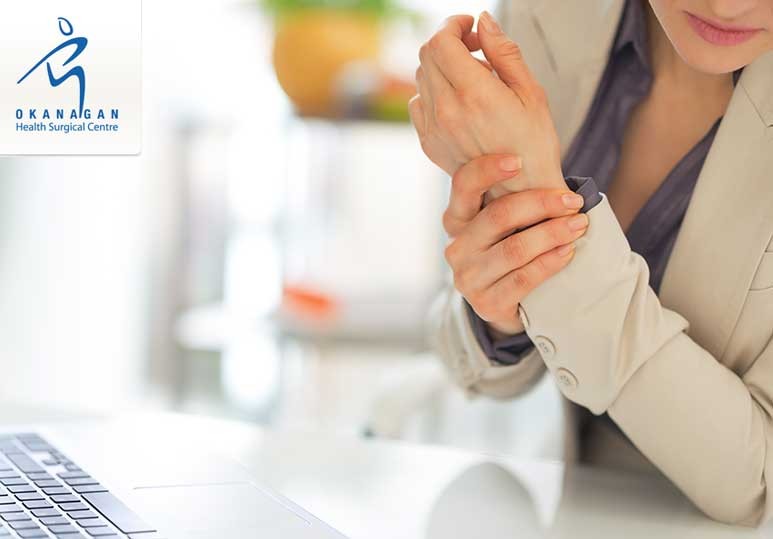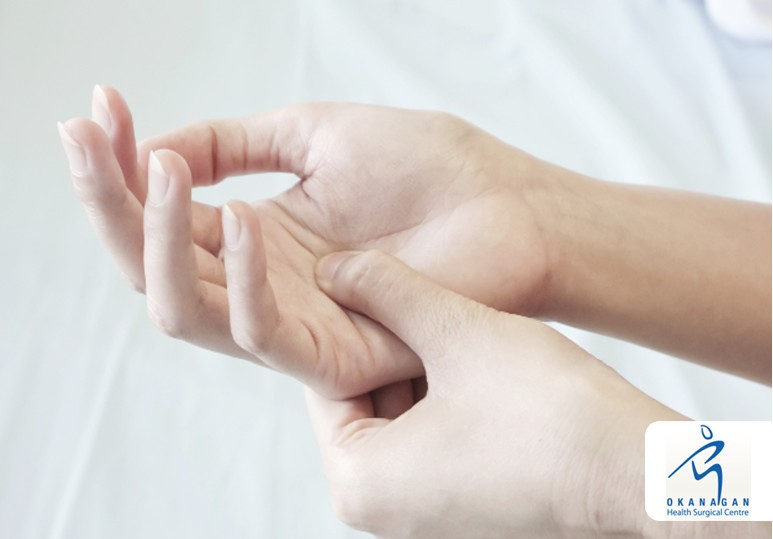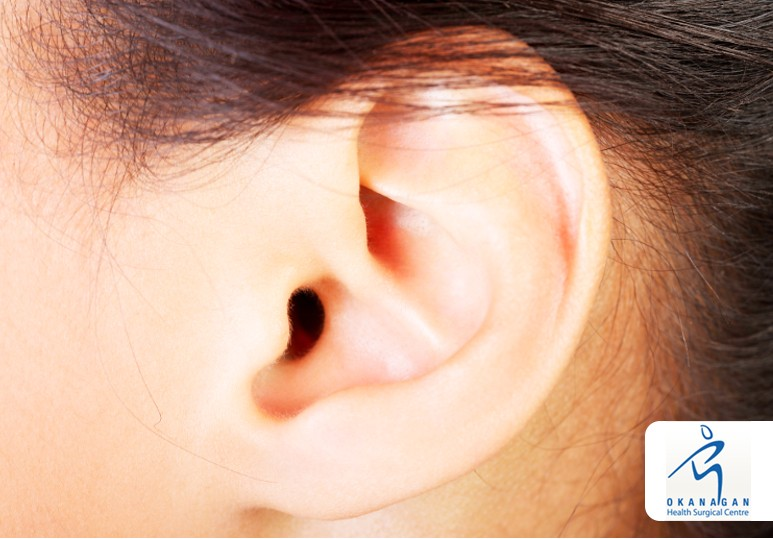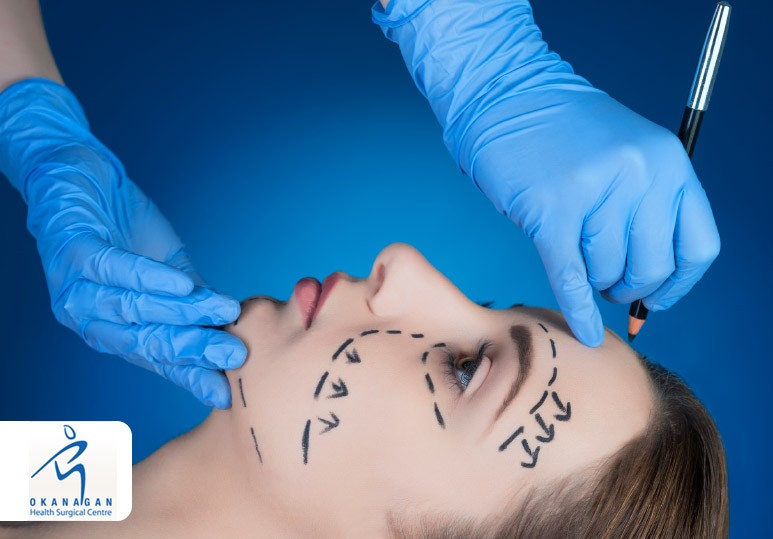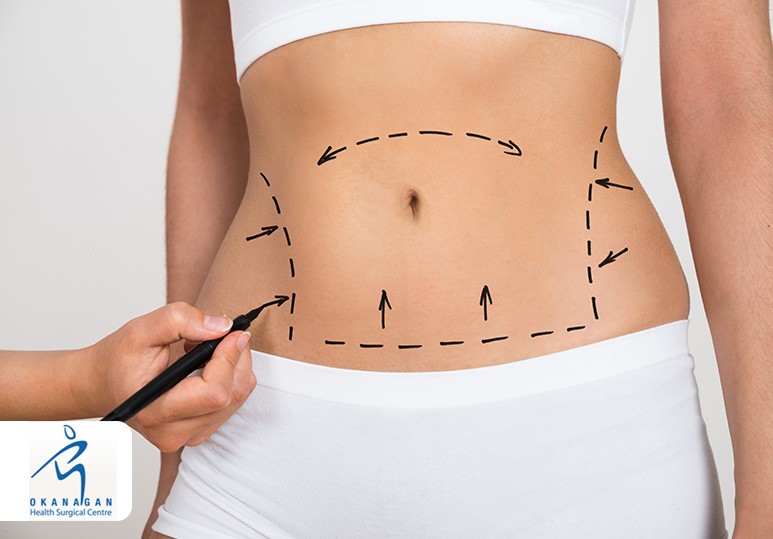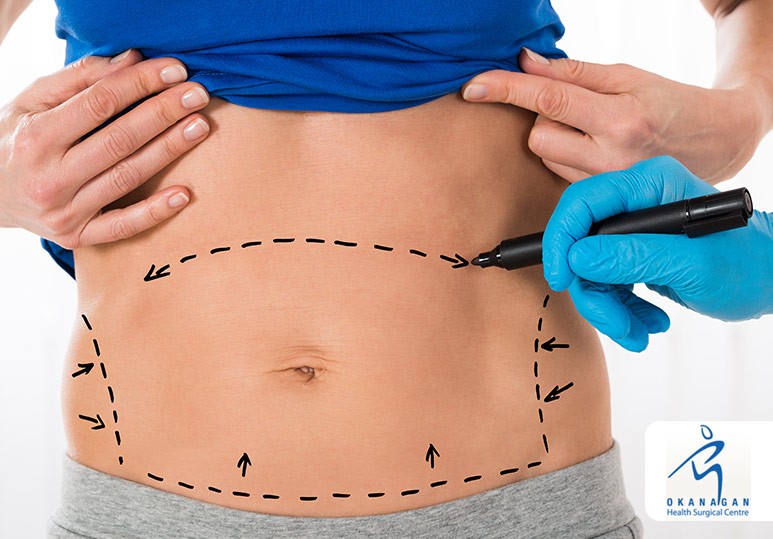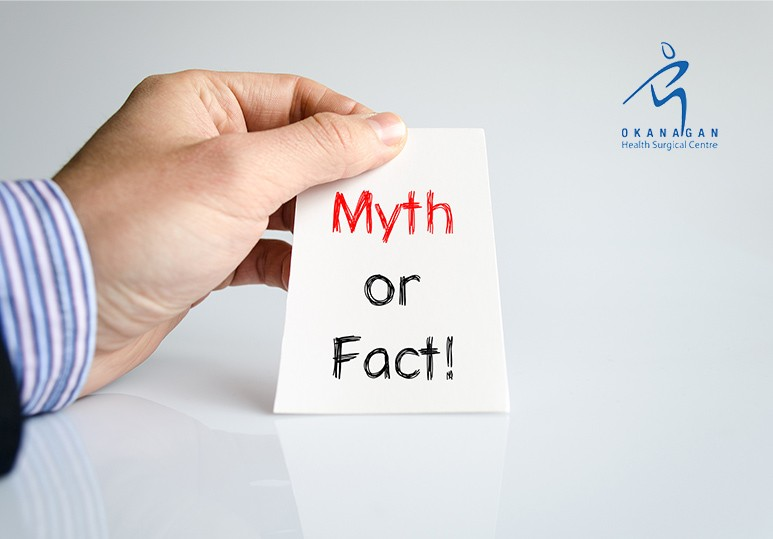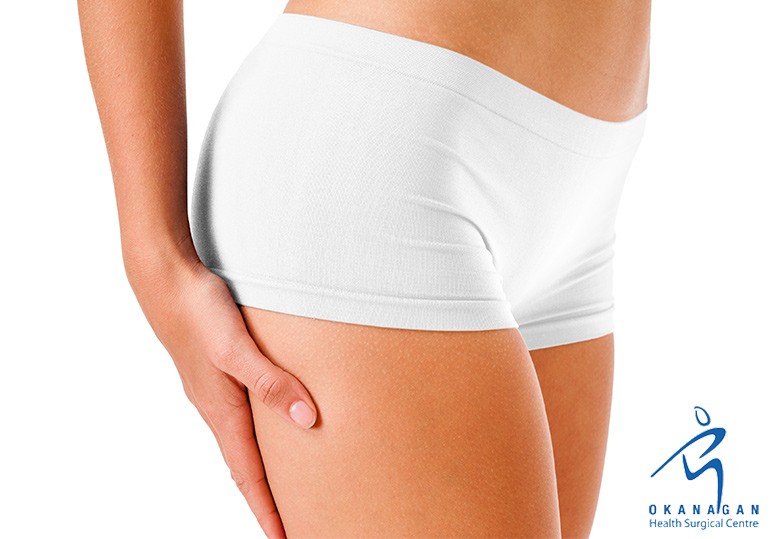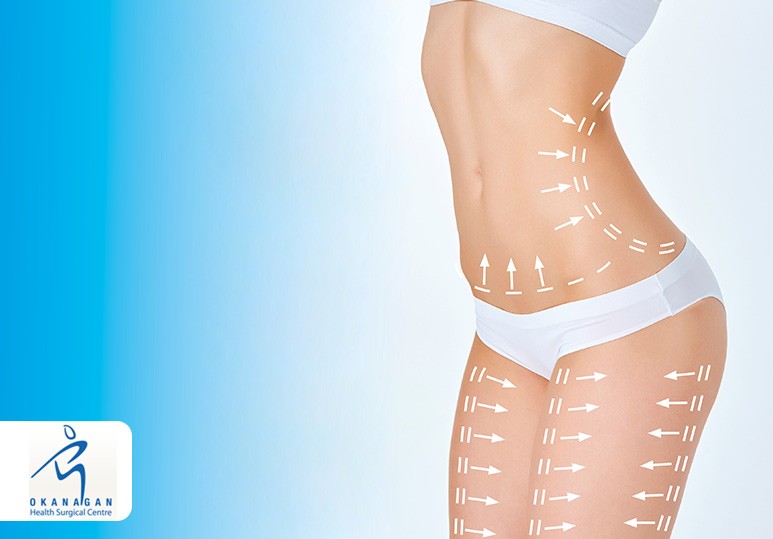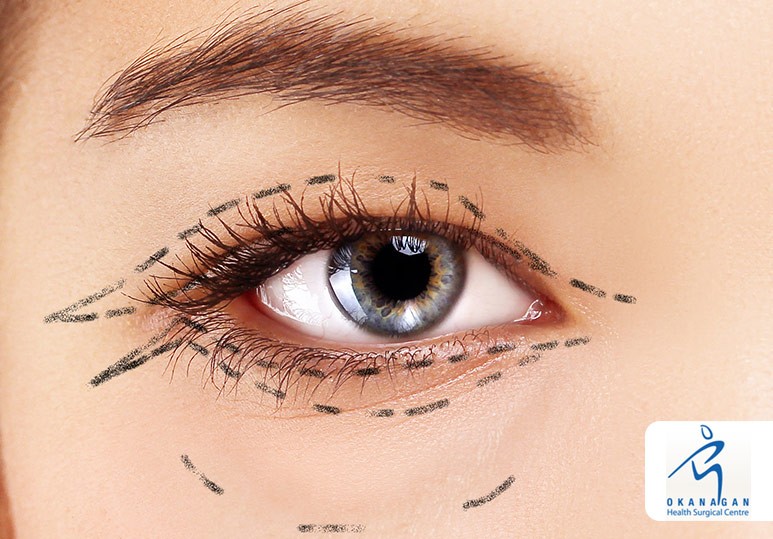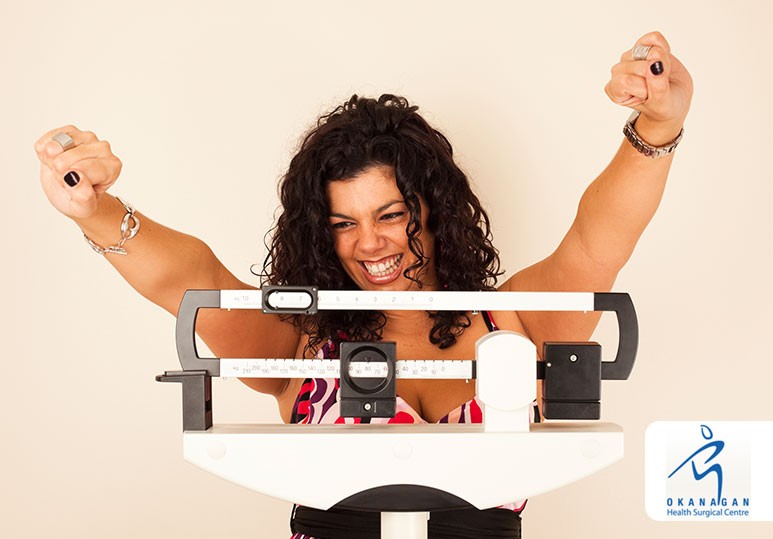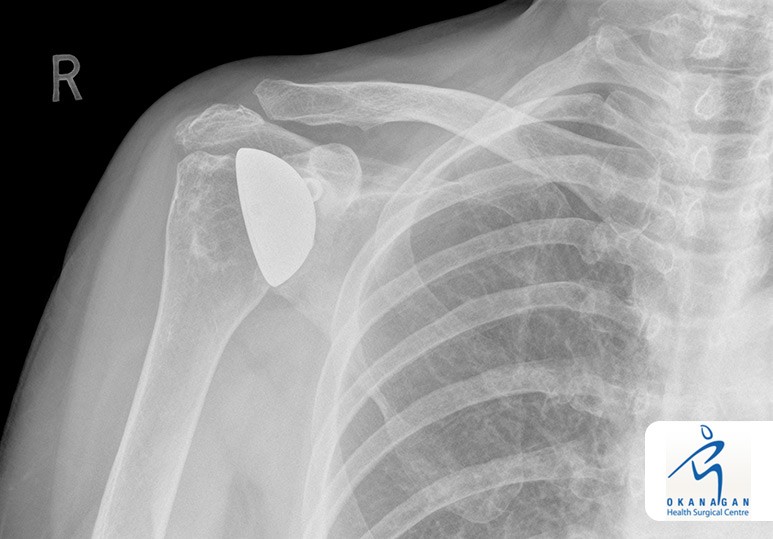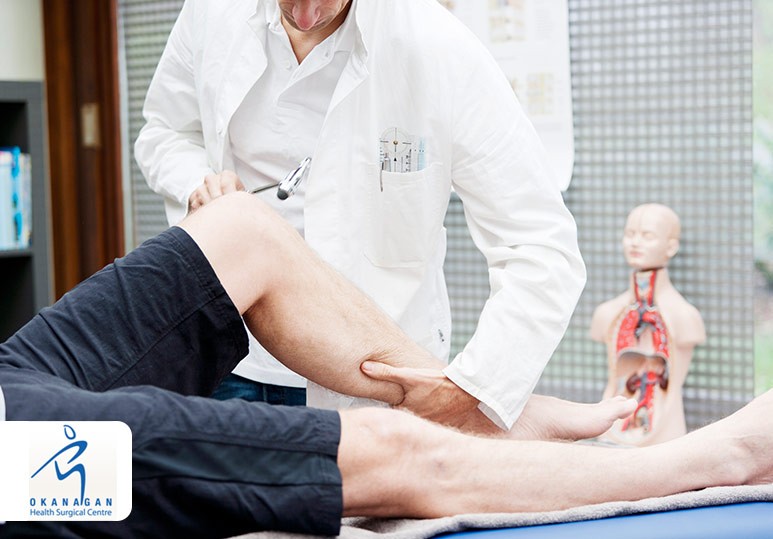Blog Articles
- Mar 27, 2024
- Okanagan Health Surgical Centre
Navigating Ankle and Foot Surgery
Ankle and foot surgeries are crucial procedures that can significantly improve mobility and quality of life. At Okanagan Health Surgical Centre, we understand the importance of comprehensive care, from pre-surgery preparation to post-operative. . .
- Mar 13, 2024
- Okanagan Health Surgical Centre
Defending Your Knees: A Comprehensive Guide to ACL Injury Prevention and Care
In the world of sports and physical activity, ACL injuries are all too common and can be devastating for athletes and active individuals alike. However, with the right knowledge and preventative measures, these injuries can often be avoided or. . .
- Feb 29, 2024
- Okanagan Health Surgical Centre
The Top Benefits of Choosing Private Hospitals for Your Healthcare Needs
In the quest for quality healthcare, the choice between public and private hospitals is a significant consideration for many individuals. Private hospitals offer a distinctive approach to healthcare, focusing on personalized care, reduced waiting. . .
- Feb 15, 2024
- Okanagan Health Surgical Centre
The Future of Minimal-Incision Surgery (MIS) in Foot and Ankle Procedures
At Okanagan Health Surgical Centre, we stand at the forefront of surgical innovation, particularly in the realm of foot and ankle procedures. In recent years, we've observed a significant resurgence in Minimal-Incision Surgery (MIS), driven by. . .
- Jan 25, 2024
- Okanagan Health Surgical Centre
Mastering the Mechanics: The Role of Arthroscopy in Shoulder Care
Welcome, dear readers, to a comprehensive journey into the intricate world of shoulder arthroscopy – a revolutionary technique that has transformed the landscape of shoulder care. In this exploration, we'll unravel the mechanics behind. . .
- Jan 11, 2024
- Okanagan Health Surgical Centre
Navigating Your Surgery Journey: The Importance of Pre-screening
Embarking on a surgical journey involves more than just the day of the procedure. It's a collaborative effort between you, your surgeon, and the healthcare team to ensure a safe and successful experience. At Okanagan Health Surgical Centre, we. . .
- Dec 28, 2023
- Okanagan Health Surgical Centre
Understanding Carpal Tunnel Release Surgery: A Step-by-Step Guide
Carpal Tunnel Syndrome (CTS) can be a debilitating condition, affecting millions of people worldwide. For many, the pain, tingling, and numbness in their hands can interfere with daily life. When conservative treatments fail to provide relief,. . .
- Dec 14, 2023
- Okanagan Health Surgical Centre
Understanding Common Knee Conditions Requiring Surgery
The human knee, a complex joint that connects the thigh bone (femur) to the shin bone (tibia), plays a pivotal role in our daily lives. It enables us to walk, run, jump, and perform various activities that define our mobility. However, the knee is. . .
- Nov 23, 2023
- Okanagan Health Surgical Centre
The Role of Breast Reduction in Relieving Back Pain and Improving Posture
For many women, the decision to undergo breast reduction surgery isn't solely about aesthetics. It's a choice driven by the desire to alleviate physical discomfort, enhance overall well-being, and improve posture. Large breasts can be a. . .
- Nov 09, 2023
- Okanagan Health Surgical Centre
Recovering from Facial Surgery: Tips for a Smooth Healing Process
Undergoing facial surgery is a significant decision that can lead to remarkable transformations, but it's equally crucial to recognize that the journey doesn't end in the operating room. The road to recovery plays a pivotal role in achieving. . .
- Oct 11, 2023
- Okanagan Health Surgical Centre
Navigating Hand Surgery: Preparing for a Successful Procedure and Recovery
Hand surgery represents a pivotal opportunity to regain functionality, alleviate pain, and enhance your quality of life. As you embark on this journey towards improved hand health, being well-informed and adequately prepared can significantly. . .
- Sep 27, 2023
- Okanagan Health Surgical Centre
Breathing Easy and Looking Fabulous: The Dual Benefits of Rhinoplasty
Rhinoplasty, commonly known as a nose job, is often associated with cosmetic enhancements aimed at refining the appearance of the nose. However, what many might not realize is that rhinoplasty offers more than just aesthetic improvements. Modern. . .
- Sep 25, 2023
- Okanagan Health Surgical Centre
The Art of Achieving a Natural Look with Breast Augmentation Mastopexy
When it comes to breast augmentation mastopexy surgery, many individuals have concerns about achieving results that appear and feel natural. This article explores the techniques and considerations that contribute to attaining a natural-looking. . .
- Aug 16, 2023
- Okanagan Health Surgical Centre
Rebuilding Strength: A Comprehensive Guide to Post-Shoulder Surgery Rehabilitation
Shoulder surgery is a common procedure for addressing various issues such as rotator cuff tears, joint replacements, or injury repair. While the surgery itself is crucial, the post-operative rehabilitation process plays an equally important role in. . .
- Aug 02, 2023
- Okanagan Health Surgical Centre
Stepping Towards Success: How to Prepare for Foot and Ankle Surgery
Preparing for foot and ankle surgery is essential to ensure a smooth and successful procedure and a seamless recovery process. By following expert guidance and preparing both physically and mentally, patients can minimize risks and complications,. . .
- Jul 26, 2023
- Okanagan Health Surgical Centre
Saline vs Silicone: A Comprehensive Guide to Understanding Breast Implants
In the world of cosmetic enhancement, breast augmentation stands as a procedure that has seen significant advancements over the years. The decision to undergo breast augmentation is a personal one, influenced by a variety of reasons ranging from. . .
- Jul 05, 2023
- Okanagan Health Surgical Centre
Is It Better To Schedule My Knee Surgery For The Summer Or The Winter?
What To Expect During Recovery From Knee Surgery Before deciding when to schedule your knee surgery, it is important to understand what to expect during recovery. Initially, there will likely be pain and swelling, which can be managed with. . .
- Jun 15, 2023
- Okanagan Health Surgical Centre
Blepharoplasty: Plastic Surgery That Opens Your Eyes
Understanding Blepharoplasty: The Basics Blepharoplasty is a surgical procedure designed to address various concerns related to the eyelids. It can involve the upper eyelids, lower eyelids, or both, depending on the individual's needs. The. . .
- Jun 11, 2023
- Okanagan Health Surgical Centre
How Advanced Plastic Surgery Procedures Can Restore Strength, Function, And Flexibility To Your Hands
Plastic Surgery For Hands And Wrists Our hands are undeniably one of the most vital parts of our bodies. They serve as versatile instruments that enable us to interact with the world around us. From the simplest of tasks like buttoning a shirt or. . .
- May 11, 2023
- Okanagan Health Surgical Centre
Is There a Difference Between Plastic Surgery and Cosmetic Surgery?
What Is Plastic Surgery? Plastic surgery is a broad term that encompasses both reconstructive and cosmetic procedures. It focuses on the reconstruction and repair of facial and body defects caused by birth disorders, accidents, injuries, or. . .
- May 04, 2023
- Okanagan Health Surgical Centre
Plastic Surgery 101: Understanding The Different Types of Breast Surgery
Plastic Surgery: Breast Surgery Breast surgery encompasses a wide range of plastic surgery techniques which can be used to reshape the size of your breasts to help you feel better and more comfortable in your own skin. Patients who opt for breast. . .
- Apr 20, 2023
- Okanagan Health Surgical Centre
Abdominal Plastic Surgery: Am I A Good Candidate For A Tummy Tuck?
Is Abdominal Plastic Surgery Right For You? You're close to your ideal weight A tummy tuck is not a weight loss procedure, and it's not a substitute for a healthy lifestyle. If you're significantly overweight or obese, it's. . .
- Apr 12, 2023
- Okanagan Health Surgical Centre
Shoulder Surgery: Repairing A Rotator Cuff Injury
Shoulder Surgery For Rotator Cuff Injuries What causes a rotator cuff injury? A rotator cuff injury can occur suddenly, such as from a fall or a direct blow to the shoulder. More commonly, however, rotator cuff injuries are the result of wear. . .
- Apr 06, 2023
- Okanagan Health Surgical Centre
5 Popular Facial Plastic Surgery Options
Plastic Surgery Options For Facial Rejuvenation Facelift Surgery Facelift surgery is one of the most well-known and widely performed facial plastic surgeries. As we age, our skin loses elasticity and begins to sag, leading to the development. . .
- Mar 25, 2023
- Okanagan Health Surgical Centre
Hand Surgery: What Is Carpal Tunnel Release?
Hand Surgery For Carpal Tunnel Relief What is Carpal Tunnel Release Surgery? Carpal tunnel release surgery is a procedure that is performed to relieve the symptoms of carpal tunnel syndrome. The surgery involves cutting the ligament that is. . .
- Mar 18, 2023
- Okanagan Health Surgical Centre
What To Expect With Open Shoulder Surgery
Before Surgery Before the surgery, you will have a pre-operative appointment with your surgeon. During this appointment, the surgeon will review your medical history, perform a physical exam, and discuss the details of the surgery with you. You. . .
- Mar 12, 2023
- Okanagan Health Surgical Centre
How To Prepare For Knee Surgery
Preparing For Knee Surgery If you're scheduled for knee surgery, it's important to be well-prepared. Here are some tips to help you get ready for your procedure and improve your chances of a smooth recovery. Educate yourself about. . .
- Feb 20, 2023
- Okanagan Health Surgical Centre
What Is Arthroscopic Shoulder Surgery?
What You Need To Know About Arthroscopic Shoulder Surgery Arthroscopic surgery uses a tool called an arthroscope, which is a small camera that is inserted during surgery to examine the tissue in and around the joint. The arthroscope is inserted. . .
- Jan 16, 2023
- Okanagan Health Surgical Centre
Functional Reasons To Consider Eyelid Surgery
Medical Conditions That May Require Eyelid Surgery Ptosis More commonly referred to as eyelid drooping, ptosis can exist from birth or develop as you age. Some eyelid drooping is expected to occur as you age and your skin no longer produces the. . .
- Jan 09, 2023
- Okanagan Health Surgical Centre
What Results To Expect After Liposuction
Post-Liposuction Expectations Swelling For about 4 weeks after liposuction, your treatment area will be swollen and some bruising may occur. During this time, you will be wearing a compression garment to help reduce pain and swelling. Bruising. . .
- Jan 02, 2023
- Okanagan Health Surgical Centre
Combining A Breast Reduction And Breast Lift
Breast Lift And Breast Reduction Breast Lift A breast lift is a surgical procedure that changes the appearance of your breasts by refining the shape of your breasts and repositioning your nipples to create a more appealing profile. A breast lift. . .
- Dec 08, 2022
- Okanagan Health Surgical Centre
What Conditions Are Treated With Shoulder Surgery?
Conditions That May Need To Receive Shoulder Surgery Rotator Cuff Injury The rotator cuff is the group of muscles and tendons within the shoulder that allows for movement while also keeping the ball of the arm bone in the shoulder socket. A. . .
- Dec 01, 2022
- Okanagan Health Surgical Centre
How To Maintain The Results Of Your Breast Mastopexy
Ways To Maintain Breast Mastopexy Results Maintain Your Weight Weight fluctuations can alter the results of your breast mastopexy. Increased weight can add fat to your breasts and alter their size, symmetry, and positioning. Added weight may. . .
- Dec 01, 2022
- Okanagan Health Surgical Centre
Body Contouring: The Benefits Of Combining A Tummy Tuck And Liposuction
Why Combine Body Contouring Procedures? What Is Liposuction? This body contouring procedure is used to remove stubborn pockets of fat. Although it is not a weight loss procedure, liposuction does permanently dispose of fat cells in the body. . . .
- Nov 21, 2022
- Okanagan Health Surgical Centre
Why Winter Is The Perfect Season For A Tummy Tuck
The Benefits Of A Winter Tummy Tuck Recover For The Summer Tummy tucks take some recovery time, so if you want to be beach body ready for summer, you shouldn’t get your tummy tuck right before summer begins. By getting a tummy tuck in winter,. . .
- Nov 14, 2022
- Okanagan Health Surgical Centre
5 Things You Need To Know About Your Orthopedic Surgeon
What To Know About Orthopedic Surgeons What An Orthopedic Surgeon Does Based on the name alone, you might think an orthopedic surgeon only performs surgery, but they can actually be far more involved than that. Orthopedic surgeons diagnose. . .
- Nov 07, 2022
- Okanagan Health Surgical Centre
Is A Breast Lift Right For You?
What To Expect From A Breast Lift Increased Lift And Higher Positioning Breast lifts are ideal if you want to reduce the look of sagging breasts. Whether your breasts have changed due to weight fluctuations or giving birth and breastfeeding, or. . .
- Oct 07, 2022
- Okanagan Health Surgical Centre
Blu-U® & Levulan® Treatment For Actinic Keratosis
What Is Actinic Keratosis? Actinic keratosis lesions typically appear on body areas that are frequently exposed to sunlight such as the face, scalp, lips, ears, neck, and backs of the hands. It is common to begin to see them appear after age 40. . . .
- Oct 06, 2022
- Okanagan Health Surgical Centre
Recovering After Abdominal Liposuction
What To Expect After Abdominal Liposuction For many patients, liposuction is the most effective treatment option to reduce unwanted fat deposits and trim and contour the waist. If it is determined that you are a good candidate for abdominal. . .
- Sep 30, 2022
- Okanagan Health Surgical Centre
Orthopedic Shoulder Surgery: The Benefits Of Shoulder Arthroscopy
The Benefits of Arthroscopic Orthopedic Surgery Your shoulder joint is vulnerable to damage by injury, arthritis, and certain health conditions. The pain and inflammation associated with the shoulder joint can affect every aspect of your. . .
- Sep 19, 2022
- Okanagan Health Surgical Centre
Colonoscopy 101: Everything You Need To Know
When Is A Colonoscopy Needed? A colonoscopy is a diagnostic procedure that allows a surgeon to view the inner lining of your large intestine and rectum. Through the use of an endoscope, which is a thin, flexible tube with a light, a colonoscopy. . .
- Sep 07, 2022
- Okanagan Health Surgical Centre
4 Common Foot And Ankle Surgeries Performed By An Orthopedic Surgeon
Foot And Ankle Surgery With An Orthopedic Surgeon If you have unexplained pain or swelling in your foot and ankle, inflamed tissue that is not responding to more conservative treatments, torn ligaments, or a possible fracture or sprain, your. . .
- Aug 02, 2022
- Okanagan Health Surgical Centre
What Is The Difference Between Microdermabrasion And Dermabrasion?
Microdermabrasion vs Dermabrasion The key difference between microdermabrasion and dermabrasion is the intensity of the treatment. While microdermabrasion resurfaces the epidermis, removing dead skin cells, dermabrasion is a more intensive. . .
- Aug 01, 2022
- Okanagan Health Surgical Centre
What Is Minor Abdominoplasty?
What Is Minor Abdominoplasty? A full abdominoplasty, or tummy tuck, removes excess fat and tissue, and addresses underlying muscle separation (rectus diastasis). This muscle damage can happen normally during pregnancy. However, in some cases, a. . .
- Jul 12, 2022
- Okanagan Health Surgical Centre
Common Injuries That May Require Knee Surgery
What Kind Of Injuries Lead To Knee Surgery? Adults commonly complain of knee pain, which can originate from daily general wear and tear, or from activities that involve jumping or quick pivoting. Any type of exercise that involves abrupt stops,. . .
- Jul 05, 2022
- Okanagan Health Surgical Centre
10 Tips For Optimal Recovery After Breast Lift Surgery
10 Tips For Optimal Healing After Breast Lift Surgery Breast lift surgery recovery is unique to each individual and is affected by many factors including age, health, and the extent of your surgical procedure. You can take steps to improve your. . .
- Jun 14, 2022
- Okanagan Health Surgical Centre
The Benefits Of Arthroscopic Knee Surgery
3 Benefits Of Arthroscopic Knee Surgery 1. No Need To Wait For Treatment During your arthroscopic knee surgery, your surgeon will not only be able to diagnose the condition causing you discomfort and pain, but they may also be able to correct it. . .
- Jun 01, 2022
- Okanagan Health Surgical Centre
The Benefits Of Combining Breast Lift And Breast Augmentation
4 Benefits Of Combining Breast Lift And Breast Augmentation To achieve your desired appearance, sometimes a breast augmentation procedure or breast lift procedure may not suffice on its own. To satisfy your goals for enhancement, you may require. . .
- May 18, 2022
- Okanagan Health Surgical Centre
Men's Health Month: 4 Things Men Can Do To Protect Their Colon Health
4 Ways Men Can Protect Their Colon Health 1. Eat Your Veggies And Whole Grains If you are looking for a sign to eat your veggies, this is it. Research has found that a diet rich in vegetables and whole grains can significantly decrease your risk. . .
- May 05, 2022
- Okanagan Health Surgical Centre
Men's Health Month: The Most Common Orthopedic Injuries In Men
Top 4 Orthopedic Injuries In Men 1. Achilles Tendon Tear An Achilles tear occurs when the tendon connecting your calf to your ankle is torn. The primary function of the tendon is to allow your foot to flex to aid in walking, running, and general. . .
- Apr 21, 2022
- Okanagan Health Surgical Centre
What To Expect With Knee Replacement Surgery
What Is Knee Replacement? The goal of knee replacement surgery is to resurface the parts of the knee joint that have been damaged and to relieve knee pain that cannot be controlled by other methods such as physical therapy and medication. During. . .
- Mar 31, 2022
- Okanagan Health Surgical Centre
Are You A Candidate For Minimally Invasive Arthroscopic Shoulder Surgery?
What Conditions Can Arthroscopic Surgery Treat? Minimally invasive surgery can be performed on a number of shoulder conditions including: Rotator cuff injuries that cause pain and weakness in the shoulder can be diagnosed and treated. . .
- Mar 16, 2022
- Okanagan Health Surgical Centre
The Most Common Causes Of ACL Injury
5 Common Causes Of ACL Injuries 1. Sports As mentioned before, ACL injuries are commonly associated with sports. Sports that involve pivoting, jumping, and abrupt stopping increase your risk of an ACL injury. These sports can. . .
- Feb 18, 2022
- Okanagan Health Surgical Centre
How To Choose Between A Tummy Tuck And Liposuction
What Is Liposuction? Liposuction is a type of cosmetic surgery that breaks up and sucks fat from the body. The fat is removed through a hollow instrument known as a cannula. The cannula is inserted under the skin with a powerful, high-pressure. . .
- Jan 28, 2022
- Okanagan Health Surgical Centre
The Uses And Benefits Of Dermabrasion
What Is Dermabrasion? Dermabrasion is performed by a plastic surgeon to smooth the texture of the skin and improve its overall appearance. During this face surgery procedure, a plastic surgeon uses a specialized device to “sand” away the. . .
- Dec 22, 2021
- Okanagan Health Surgical Centre
Wrist Arthroscopy 101: Everything You Need to Know
Different types of arthroscopy procedures can treat different joint and ligament concerns such as arthritis, carpal tunnel syndrome, ACL tears, and more. How Does An Arthroscopy Procedure Work? Arthroscopy is typically an outpatient procedure. . .
- Dec 10, 2021
- Okanagan Health Surgical Centre
Ganglion Cyst: What Is It And How Is It Treated?
What Is A Ganglion Cyst? A Ganglion Cyst is a small sac of fluid that typically forms over a joint or tendon in the hand or wrist. Inside of the cyst is a clear, jelly-like fluid that when pressed feels firm or spongey. The cyst is noncancerous,. . .
- Nov 26, 2021
- Okanagan Health Surgical Centre
Everything You Need to Know About Flat Foot Reconstruction Surgery
In most cases, flat feet are caused by an injury, creating problems with walking, running, and standing for long periods of time. Thankfully, there are orthopedic surgery options such as flat foot reconstruction surgery that can help restore your. . .
- Nov 12, 2021
- Okanagan Health Surgical Centre
Breast Revision Surgery 101: What You Need To Know
Breast Revision Surgery 101 Who Needs Breast Revision Surgery? Some women are not happy with the initial results of their breast implant surgery, or complications occur resulting in changes in the appearance of their breasts. Often, the goal. . .
- Oct 28, 2021
- Okanagan Health Surgical Centre
Everything You Need To Know About Chin Surgery
What Is Chin Liposuction? During a chin liposuction procedure (also known as submental liposuction), your plastic surgeon will administer local anesthesia to your neck and chin area before making two small incisions under your chin crease. Then. . .
- Oct 13, 2021
- Okanagan Health Surgical Centre
Tummy Tucks: What To Consider From Consultation To Recovery
This cosmetic surgical procedure removes excess stomach fat and skin while also tightening the mid and lower abdominal muscles. Before deciding to go ahead with this transforming, body contouring surgical procedure, there are a few factors to. . .
- Sep 23, 2021
- Okanagan Health Surgical Centre
The Health Benefits of Liposuction
Health Benefit #1: Improved Overall Health. Obesity is linked to many serious diseases and health concerns, so once you lose the weight your body will experience the benefits. The desire to reduce body fat and become healthy is a journey. For some. . .
- Sep 09, 2021
- Okanagan Health Surgical Centre
Signs You May Need Shoulder Surgery
Shoulder aches, pains, stiffness, numbness, and tingling are all ways that your shoulder can be crying out for help. Not every single situation calls for you to run to the nearest shoulder surgeon, but there are signs that your body is asking for. . .
- Aug 15, 2021
- Okanagan Health Surgical Centre
How to Maintain Healthy Knees
The knees are an important and complex part of the body, but the good news is that some very simple habits can help you achieve knee joint health. Here are the top recommendations to maintain the health of your knees and avoid the pain and. . .
- Aug 12, 2021
- Okanagan Health Surgical Centre
What You Need to Know About Recovering From Foot and Ankle Surgery
What To Expect When you opt for surgery on your feet or ankles there are three main questions to answer regarding your healing. You will want to know what to expect when you awake from surgery, how long your recovery will take, and what the. . .
- Jul 25, 2021
- Okanagan Health Surgical Centre
What to Expect after Hand Surgery: A Step by Step Guide
Is Hand Surgery Right For Me? The decision of whether or not to have hand and wrist surgery is based on a number of factors that can be discussed with your doctor prior to making a final decision. As with any type of surgery possible risks and. . .
- Jun 24, 2021
- Okanagan Health Surgical Centre
Recovering from Knee Surgery: What to Expect
Your knee is a complex and important part of your body that helps you complete most of your daily activities. Aging, injury and chronic conditions can make the knee become immobile or cause constant pain. If knee surgery has been recommended, ensure. . .
- Jun 16, 2021
- Okanagan Health Surgical Centre
5 Shoulder Surgery Options Performed by an Orthopedic Surgeon
Whether you are a professional athlete, a weekend beer league warrior, or someone who has never thrown a ball in their life you may find yourself struggling with a nagging shoulder injury, or chronic shoulder pain that doesn’t seem to want to go. . .
- Jun 10, 2021
- Okanagan Health Surgical Centre
5 Types Of Foot Surgery An Orthopedic Surgeon Performs
You tore a ligament in your foot playing your favourite sport a few weeks ago, and your physical therapist has been hard at work trying to help you rehabilitate it. Unfortunately, your crutches and the constant pain in your foot remind you that you. . .
- May 25, 2021
- Okanagan Health Surgical Centre
Chin Liposuction - What To Expect
Chin Liposuction - What To Expect As people grow older they lose the elasticity and consistency of the skin on their face. Aging can cause a sagging jawline and fatty deposits under your chin. Chin liposuction is a minimally invasive procedure to. . .
- May 18, 2021
- Okanagan Health Surgical Centre
Facial Rejuvenation Surgery: 5 Things You Need to Know
What Do I Need to Know About Face Lift Surgery? Over time, the effects of aging like wrinkles and skin sagging become increasingly noticeable, especially around the face and neck. This is a normal and healthy part of growing older. A facelift,. . .
- May 04, 2021
- Okanagan Health Surgical Centre
5 Reasons for Breast Implant Revision Plastic Surgery
Have you been secretly wanting smaller implants? Or perhaps your implants have moved or shifted or even changed size? The results of your initial breast augmentation procedure may not be permanent. A simple breast implant revision surgery can easily. . .
- Apr 20, 2021
- Okanagan Health Surgical Centre
ACL Reconstruction Surgery
The knee is one of the largest, most complex joints in our bodies. It is more than just a hinge connecting the two longest mechanical levers in our body; the thigh bone and shin bone. Our knees are what allow our bodies to rationally move, jump,. . .
- Apr 13, 2021
- Okanagan Health Surgical Centre
Surgery For Treating Carpal Tunnel Syndrome
Carpal Tunnel Syndrome is a condition caused by strenuous pressure on the median nerve in the carpal tunnel. If there is frequent pressure, you may experience symptoms such as tingling, numbness, and weakness in the hand. The pressure can be. . .
- Mar 16, 2021
- Okanagan Health Surgical Centre
Nasal Surgery: What To Expect Before And After Rhinoplasty
Are you considering altering your facial features with nasal surgery? Here is our list of what to expect before and after this popular surgery. Everything You Need To Know Before Nasal Surgery There are many benefits of nasal surgery,. . .
- Mar 03, 2021
- Okanagan Health Surgical Centre
Do’s and Don'ts For A Successful Orthopedic Knee Surgery Recovery
Congratulations - You’re finally about to undergo orthopedic knee surgery after months or years of suffering from knee pain and injury that has stopped you from getting back to sports, playing with your kids or just enjoying life. We’re so. . .
- Feb 26, 2021
- Okanagan Health Surgical Centre
4 Incredible Benefits of a Mommy Makeover
If you are looking to rejuvenate your body’s appearance after pregnancy or weight loss, you may want to consider a customized mommy makeover procedure. Here’s everything you need to know about this cosmetic procedure and the incredible benefits. . .
- Feb 14, 2021
- Okanagan Health Surgical Centre
How to Ensure a Successful Recovery From Your Shoulder Surgery
Are you scheduled to undergo shoulder surgery? While this can have many benefits including improved mobility and pain relief, it does require an extensive healing period. Here is a total guide on what you can expect from the recovery and some tips. . .
- Feb 07, 2021
- Okanagan Health Surgical Centre
4 Things You Must Do for the Best Body Contouring Results
Are you considering body contouring surgery such as liposuction? Here are four things you need to do before your plastic surgery procedure to ensure the best results. Body contouring surgery is designed to eliminate any stubborn pockets of fat. . .
- Jan 24, 2021
- Okanagan Health Surgical Centre
4 Important Facts to Consider Before Undergoing a Vasectomy
**Okanagan Health Surgical No Longer Offers Vasectomies** If you and your spouse are searching for a permanent method of birth control, you may have discussed a vasectomy. However, before you undergo this procedure, here are four important. . .
- Jan 17, 2021
- Okanagan Health Surgical Centre
6 Signs You May Need Knee Replacement Surgery
Is knee pain preventing you from doing the things you love and living a healthy lifestyle? Here are six signs you could benefit from a knee replacement surgery and how our Kelowna surgeons can create a tailored orthopedic surgery plan to suit your. . .
- Jan 10, 2021
- Okanagan Health Surgical Centre
6 Important Facts About Breast Augmentation Surgery
Are you considering undergoing breast augmentation surgery? Here are six things you should know before having this cosmetic surgery and why working with a board-certified plastic surgeon is so important. Breast augmentation has long been one of. . .
- Dec 17, 2020
- Okanagan Health Surgical Centre
Are You a Good Candidate for Body Contouring Surgery?
Are you considering a body contouring surgery, such as liposuction or an abdominoplasty? Here are some signs that you could be a good candidate for such procedures and how our board-certified plastic surgeons can help you achieve the safest and most. . .
- Dec 10, 2020
- Okanagan Health Surgical Centre
5 Steps to Ensure a Safe and Quick Facelift Recovery
Facelift surgery is one of the most dramatic procedures for looking younger. However, to obtain the safest and most satisfactory results, a patient must pay close attention to the recovery process. Here’s everything you need to know about the. . .
- Dec 03, 2020
- Okanagan Health Surgical Centre
4 Signs You’re a Good Candidate for a Mommy Makeover
Are you looking for a way to restore your pre-pregnancy body? A mommy makeover involves a number of cosmetic surgeries, such as breast augmentation and abdominoplasty, to help rejuvenate your appearance. Here are the four signs that you’re ready. . .
- Nov 26, 2020
- Okanagan Health Surgical Centre
What to Expect From a Cosmetic Chin Surgery
Chin implant surgery is a cosmetic procedure that is designed to improve the contours of your neck, chin, and jawline. Here’s everything you need to know about chin augmentation and how it can help you achieve a naturally attractive balance. . .
- Nov 19, 2020
- Okanagan Health Surgical Centre
How to Choose the Right Size Implant for Your Breast Augmentation
Are you considering undergoing breast augmentation surgery? Here are some top tips on how to choose the right size implant for your body and lifestyle. Breast augmentation is a cosmetic surgery designed to increase breast size and enhance. . .
- Nov 12, 2020
- Okanagan Health Surgical Centre
Top Tips to Ensure the Safest Results From Your Orthopedic Surgery
Are you planning on undergoing orthopedic surgery? Whether it’s a hip replacement or a knee surgery, here are some tips on how to prepare for your procedure to ensure the safest and most satisfactory results. Orthopedic surgery refers to a. . .
- Oct 27, 2020
- Okanagan Health Surgical Centre
The Main Types of Gynecology Surgery
At our Kelowna private hospital, our team of highly experienced and trained plastic surgeons offer a range of gynecology surgeries and can provide customized and holistic care for a variety of women’s health conditions. At our Kelowna. . .
- Oct 13, 2020
- Okanagan Health Surgical Centre
How to Determine Which Type of Breast Surgery is Right for You
Cosmetic breast surgery can involve breast augmentation alone, a breast mastopexy alone, or a combination of these two procedures. Here are some of the factors to consider when you are deciding which option is right for you. For women who are. . .
- Oct 06, 2020
- Okanagan Health Surgical Centre
4 Questions to Ask Yourself Before Having a Facelift
A facelift, also known as a rhytidectomy, can effectively reduce signs of aging, such as fine lines, wrinkles, and sagging. Here are the top four questions to ask yourself before determining if this face surgery is right for you. As we age,. . .
- Sep 22, 2020
- Okanagan Health Surgical Centre
4 Facts All Men Should Know About Vasectomy Reversals
**Okanagan Health Surgical No Longer Offers Vasectomies** Are you considering having a vasectomy reversal? Here are four important factors to consider before you undergo this surgery and how to find the right surgeon to ensure the highest rate of. . .
- Sep 13, 2020
- Okanagan Health Surgical Centre
Are You a Good Candidate for Cosmetic Chin Surgery?
Are you feeling self-conscious about the appearance of your chin? At our Kelowna private hospital, we offer customized plastic surgery treatments, including chin surgery, to help you achieve all your aesthetic goals. Chin surgery is a plastic. . .
- Sep 08, 2020
- Okanagan Health Surgical Centre
Top Reasons Why You Should See an Orthopedic Surgeon
Are you suffering from foot, ankle, knee, or shoulder pain? At our Kelowna private hospital, we offer orthopedic surgery in a number of areas to help improve your well-being and get you moving like you used to. Orthopedic surgery spans a wide. . .
- Aug 29, 2020
- Okanagan Health Surgical Centre
3 Tips to Get the Best Breast Augmentation Results
A breast augmentation can help enhance the size and shape of your breasts. If you are considering undergoing this cosmetic surgery, here are four dos and don’ts to follow to ensure you get the best results. Breast augmentation is one of the. . .
- Aug 17, 2020
- Okanagan Health Surgical Centre
Top Tips for Preparing for an Abdominoplasty
Are you considering undergoing an abdominoplasty? Here are some tips on how to prepare for this plastic surgery to ensure the safest and most satisfactory results. An abdominoplasty (tummy tuck) is a body contouring procedure which involves the. . .
- Aug 11, 2020
- Okanagan Health Surgical Centre
Botox vs Facelift: Everything You Need to Know
Botox is one of the most popular cosmetic treatments due to its ability to help patients achieve significant facial rejuvenation without the high costs, recovery time, and risks associated with cosmetic surgeries such as facelifts. Here’s what you. . .
- Jul 25, 2020
- Okanagan Health Surgical Centre
5 Reasons to Opt For a Breast Augmentation Mastopexy
Are you unhappy with the size or shape of your breasts? Here are some of the top benefits you’ll receive when you opt for a breast augmentation mastopexy at our Kelowna private hospital. Today, there are a variety of breast surgery options. . .
- Jul 14, 2020
- Okanagan Health Surgical Centre
5 Reasons To Opt For a Brow Lift
Are you looking for a procedure that will help you look naturally younger and more refreshed? Here are the incredible benefits of opting for a customized brow lift at our Kelowna private hospital. As we age, our facial tissues become weak and. . .
- Jul 05, 2020
- Okanagan Health Surgical Centre
4 Reasons to Opt For a Neck Lift Surgery
The neck often shows distinct signs of aging before the rest of the facial area. If you are considering scheduling a neck lift plastic surgery in Kelowna, then here are some of the great benefits you will receive. Many individuals focus on the. . .
- Jun 28, 2020
- Okanagan Health Surgical Centre
How to Prepare For An Otoplasty
Are you considering a future cosmetic ear surgery? Here are some of the top tips from our Kelowna plastic surgeon on how to prepare for an otoplasty to ensure the safest and most satisfactory results. Otoplasty, or ear surgery, is often. . .
- Jun 15, 2020
- Okanagan Health Surgical Centre
5 Incredible Benefits of Opting for a Breast Reduction Surgery
For women who suffer the painful and uncomfortable consequences of large breasts, a breast reduction surgery can be a life-changing event. Here’s what to expect from this breast surgery procedure, and how to decide if it’s the right procedure. . .
- Jun 06, 2020
- Okanagan Health Surgical Centre
3 Benefits of Having a Breast Lift Surgery
Are you feeling self-conscious about sagging breasts? Are you looking to restore a more youthful and perky figure? Here’s how a breast mastopexy surgery can help you achieve all your aesthetic goals. For women who are looking to improve the. . .
- May 28, 2020
- Okanagan Health Surgical Centre
How to Choose The Right Facial Rejuvenation Treatment For Your Needs
Are you considering a facial rejuvenation treatment? From cosmetic face surgery such as forehead lifts, brow lifts, and neck lifts, to non-surgical treatments including Botox and Juvederm, here’s how to decide which procedure is best suited for. . .
- May 11, 2020
- Okanagan Health Surgical Centre
14 Questions You Must Ask Your Plastic Surgeon
Do you have a virtual consultation scheduled with your plastic surgeon regarding your breast or other cosmetic surgery? Here are 14 questions you must make sure you ask during this consultation. One of the most important aspects of cosmetic. . .
- May 04, 2020
- Okanagan Health Surgical Centre
5 Signs Of a Botched Breast Augmentation Surgery
Have you recently undergone a breast augmentation surgery, but something doesn’t feel quite right? Here are some of the sure-fire signs of a botched breast augmentation surgery and how you can rectify the situation. Today, many women are. . .
- Apr 19, 2020
- Okanagan Health Surgical Centre
3 Factors to Consider When Deciding Between Surgical vs Non Surgical Facial Rejuvenation
In recent years, there has been an explosion of options to help your face look better and younger, including fillers, toxins, face surgery including facelifts and otoplasty — and the list goes on. With so many choices, how do you know which one is. . .
- Apr 14, 2020
- Okanagan Health Surgical Centre
6 Reasons to Consider Combining a Breast Lift With Implants
Are you feeling unsatisfied with the appearance of your breasts? Learn the difference between a breast lift and a breast augmentation, and whether or not a combined procedure could be the right solution for all your cosmetic needs. There are. . .
- Apr 09, 2020
- Okanagan Health Surgical Centre
3 Steps to a Breast Augmentation Consultation
Are you feeling unsatisfied with the size of your breasts? When performed by a board-certified plastic surgeon, a breast augmentation is a safe and effective way to increase your cup size and improve your aesthetic appearance. When it comes to. . .
- Mar 29, 2020
- Okanagan Health Surgical Centre
4 Main Types of Cosmetic Face Surgery
Are you feeling self-conscious about unwanted facial lines, wrinkles, and sagging skin? At our Kelowna private hospital, our board-certified plastic surgeons are able to provide a wide range of cosmetic face surgery procedures, including otoplasty,. . .
- Mar 18, 2020
- Okanagan Health Surgical Centre
Knee Arthroscopy 101: What You Need to Know
Are you suffering from a knee injury or pain? Here’s everything you need to know about the customized orthopedic surgery treatments we offer at our Kelowna private hospital, including arthroscopic surgeries. At our Kelowna private hospital,. . .
- Mar 08, 2020
- Okanagan Health Surgical Centre
6 Foods That Will Help Speed Up Your Recovery After Cosmetic Surgery
Are you wondering what the recovery period is like after cosmetic surgery, be it face or breast surgery? Here are the top 6 foods recommended by plastic surgeons to eat following your procedure to help ensure a quick and safe recovery. A key. . .
- Feb 28, 2020
- Okanagan Health Surgical Centre
Everything You Need to Know About Orthopaedic Surgery
Orthopaedic surgeons provide an extensive range of treatments. Here’s your complete guide to orthopaedic surgery and what it includes. Orthopaedic surgery is an operative procedure performed by an orthopaedic surgeon to treat musculoskeletal. . .
- Feb 15, 2020
- Okanagan Health Surgical Centre
5 Incredible Benefits of Breast Augmentation
Are you considering having a breast augmentation? Here are some of the incredible benefits patients can enjoy from the results of this popular cosmetic surgery. Whether it’s due to pregnancy, weight loss, or aging, many women are looking for. . .
- Feb 05, 2020
- Okanagan Health Surgical Centre
9 Simple Ways to Ensure a Quick and Safe Recovery From Your Ear Surgery
Are you going to undergo ear surgery? Here are some tips on how to ensure a quick and safe recovery from your otoplasty and get the most satisfactory results. Ear surgery, also referred to as an otoplasty, is a cosmetic surgery that is designed. . .
- Jan 31, 2020
- Okanagan Health Surgical Centre
4 Types of Cosmetic Breast Surgery: Which is Right For You?
Improving the appearance of your breasts can bring a new sense of confidence that impacts how you feel every day. From breast augmentations and breast lifts, to a combined breast augmentation mastopexy, here are your different breast surgery options. . .
- Jan 15, 2020
- Okanagan Health Surgical Centre
Your Complete Guide to Preparing for a Liposuction Surgery
Are you considering a liposuction treatment? Here are some of the top tips on how to prepare for your surgery to ensure the fastest, safest, and most satisfactory results. Liposuction is a popular cosmetic body contouring procedure that is. . .
- Jan 05, 2020
- Okanagan Health Surgical Centre
Top 3 Facial Surgeries for All Your Anti-Aging Needs
Are you looking to rejuvenate your skin and restore a more youthful and restful facial appearance? At our Kelowna private hospital, we offer a range of facial cosmetic procedures, including ear surgery, eyelid surgery, facelifts, and browlifts to. . .
- Dec 30, 2019
- Okanagan Health Surgical Centre
4 Benefits of Opting For a Non-Surgical Facelift
Are you feeling self conscious about facial wrinkles or fine lines? At our Kelowna private hospital, we offer both surgical and non-surgical cosmetic facelifts to meet all your aesthetic needs. In today’s busy world, both women and men are. . .
- Dec 26, 2019
- Okanagan Health Surgical Centre
Your Total Guide to Liposuction Costs
Are you considering a liposuction treatment? Here’s your guide on how much liposuction costs and how it can benefit you. Liposuction is a very popular body contouring cosmetic procedure that is designed to remove excess fat from. . .
- Dec 05, 2019
- Okanagan Health Surgical Centre
3 Things to Think About Before a Breast Augmentation
Are you unhappy with the size of your breasts? The customized breast augmentation procedure at our Kelowna private clinic is a safe and effective way to increase your breast size and enhance your appearance. Breast augmentation is one of the. . .
- Nov 25, 2019
- Okanagan Health Surgical Centre
6 Key Benefits of a Chin Implant Surgery
Chin implant surgery, also referred to as chin augmentation, is an effective method of enhancing a patient’s facial definition and building a more exact profile. Here’s everything you need to know about this cosmetic procedure and how it can. . .
- Nov 10, 2019
- Okanagan Health Surgical Centre
4 Sure Fire Signs You Are a Good Candidate For an Abdominoplasty
Are you feeling self conscious about excess skin around your abdomen? Here are 4 signs that an abdominoplasty might be the right option for you. An abdominoplasty, also referred to as a tummy tuck, is a popular cosmetic surgery procedure that. . .
- Nov 06, 2019
- Okanagan Health Surgical Centre
Everything You Need to Know About a Vasectomy
**Okanagan Health Surgical No Longer Offers Vasectomies** Are you considering a vasectomy? Considered as one of the safest and most effective forms of contraception for men, here’s everything you need to know about this surgical. . .
- Nov 04, 2019
- Okanagan Health Surgical Centre
5 Signs You Need an Achilles Tendon Repair
Are you suffering from pain due to an Achilies tendon rupture? Here’s how our highly experienced and qualified Kelowna orthopedic surgeons can help relieve any pain and restore function and mobility to your foot. The Achilies tendon is one of. . .
- Oct 28, 2019
- Okanagan Health Surgical Centre
6 Things You Must Do Before Any General or Cosmetic Surgery
Are you planning on undergoing cosmetic surgery at our private clinic? Here are 6 pre-operative care tips you must follow to ensure the safest and most satisfactory results. When performed by a board-certified plastic surgeon, cosmetic. . .
- Oct 01, 2019
- Okanagan Health Surgical Centre
A Week By Week Guide to Recovering From an Abdominoplasty
An abdominoplasty is a popular surgical cosmetic treatment that is designed to give your abdomen a more toned and flattened appearance. If you’re considering this procedure, here are some simple tips to ensure your recovery goes as safely and. . .
- Sep 22, 2019
- Okanagan Health Surgical Centre
6 Reasons to Opt for Treatment at Our Private Surgery Clinic
The health of you and your family is too important to risk. Opting to seek treatment in a private surgery clinic in Kelowna will ensure you receive the most advanced treatments and state-of-the-art care. A critical part of good health is. . .
- Sep 17, 2019
- Okanagan Health Surgical Centre
How to Decide if Plastic Surgery is Right For You
Have you ever considered undergoing cosmetic surgery? If so, here are some of the right and wrong reasons for wanting to work with a plastic surgeon. When performed by an experienced, board-certified plastic surgeon, cosmetic procedures such as. . .
- Sep 10, 2019
- Okanagan Health Surgical Centre
Quick Facts About Knee Arthroscopy Surgery
Are you suffering from knee pain? Our Kelowna knee specialists use knee arthroscopic surgery to treat a wide range of common knee conditions including knee arthritis and ligament injuries to restore your quality of life. If you are suffering. . .
- Aug 24, 2019
- Okanagan Health Surgical Centre
6 Questions to Ask Yourself When Choosing a Plastic Surgeon
If you are deciding to undergo plastic surgery, there are many things to take into consideration. One of the most important is finding the right cosmetic surgeon to work with. Here are 6 questions you must ask yourself before deciding on a plastic. . .
- Aug 14, 2019
- Okanagan Health Surgical Centre
7 Simple Tips For a Safe and Fast Liposuction Recovery
Are you considering a liposuction procedure? Here’s what you need to know about the recovery period and how to ensure you get the most satisfactory results. Liposuction is a surgical body contouring procedure that is designed to remove. . .
- Jul 30, 2019
- Okanagan Health Surgical Centre
Your Guide to Foot Fusion Surgery
Are you suffering from foot pain that is affecting your quality of life? Learn more about how our foot fusion surgery and how our specialists can help quickly and safely restore your function and movement. Are you suffering from prolonged. . .
- Jul 23, 2019
- Okanagan Health Surgical Centre
How to Decide Between a Breast Augmentation and a Breast Lift
Are you feeling conscious about the appearance of your breasts? This guide helps you understand the difference between a breast augmentation and a breast lift and can help you decide which procedure is best for your aesthetic needs. Whether. . .
- Jul 09, 2019
- Okanagan Health Surgical Centre
How to Recover Successfully From a Facelift
Are you considering a facelift procedure? Here’s your comprehensive guide to a facelift recovery to help ensure you enjoy the safest and most satisfactory outcome. Whether it’s due to genetics, environmental factors, or lifestyle, one of. . .
- Jul 03, 2019
- Okanagan Health Surgical Centre
How Our Knee Specialists Can Help Restore Function to an Injured Knee
Do you suffer from chronic knee pain? Our knee specialists can provide some much-needed relief and greatly improve your quality of life. Your knees are vital to everyday life and any damage or injury to them can make even simple activities,. . .
- Jun 19, 2019
- Okanagan Health Surgical Centre
4 Things You Must Know About Liposuction
Are you considering liposuction? Before undergoing this plastic surgery, here are 4 factors you must consider first. When performed by a board-certified plastic surgeon, liposuction is a safe and effective way of removing stubborn pockets of. . .
- Jun 05, 2019
- Okanagan Health Surgical Centre
6 Tips For Taking Care of Yourself Before Surgery
We offer a wide variety of general and cosmetic surgery treatments at our Kelowna hospital, but whichever one you opt for, here’s why pre-operative care is so critical to ensure the best results. At our Kelowna private hospital, our team of. . .
- Jun 01, 2019
- Okanagan Health Surgical Centre
4 Benefits of Private Healthcare
Plastic surgery has become increasingly popular over the years with female and male patients of all ages. Here are some of the benefits of the customized plastic surgery treatments at our private Kelowna hospital. Whether you require foot,. . .
- May 19, 2019
- Okanagan Health Surgical Centre
4 Ways Plastic Surgery Can Benefit Your Physical and Mental Health
Plastic surgery has become increasingly popular over the years with female and male patients of all ages. Here are some of the benefits of the customized plastic surgery treatments at our private Kelowna hospital. There are numerous reasons why. . .
- May 11, 2019
- Okanagan Health Surgical Centre
5 Reasons to Consider Foot Surgery
Have you suffered from a foot or ankle injury? Here’s what you need to know about foot and ankle surgery and how our doctors can help restore your health and quality of life. Injuries to the foot and ankle are amongst the most frequently. . .
- May 04, 2019
- Okanagan Health Surgical Centre
3 Reasons to Consider Facial Plastic Surgery
Are you looking for a way to rejuvenate your appearance? From facelifts to liposuction and Botox, we offer a wide range of facial cosmetic procedures at our Kelowna health centre to reverse the effects of aging and give you dramatic, youthful, and. . .
- Apr 25, 2019
- Okanagan Health Surgical Centre
3 Benefits of Working with a Board Certified Plastic Surgeon
Are you planning on having cosmetic surgery? Here are just some reasons why you need to make sure you work with a board-certified plastic surgeon. If you are considering cosmetic surgery, such as a facelift or liposuction, there are many. . .
- Apr 25, 2019
- Okanagan Health Surgical Centre
3 Factors to Consider Before Booking a Facelift
Are you considering a cosmetic facelift procedure in Kelowna? Here’s everything you need to know before booking your treatment. For many years, a facelift has remained one of the most effective, safe, and popular cosmetic procedures for. . .
- Apr 24, 2019
- Okanagan Health Surgical Centre
3 Reasons Why You May Want to Consider Plastic Surgery
Over recent years, plastic surgery has become increasingly popular with a number of Kelowna patients opting for different procedures. Here are just some reasons why you might want to consider one for yourself. There are many different reasons. . .
- Mar 25, 2019
- Okanagan Health Surgical Centre
Everything You Need to Know About Cosmetic Ear Surgery
Are you unhappy with the size and shape of your ears? Learn more about our Kelowna ear surgery and how this cosmetic procedure can help you feel more happy and comfortable with your appearance. Otoplasty, or ear surgery, is a cosmetic procedure. . .
- Mar 18, 2019
- Okanagan Health Surgical Centre
Recovering From a Ganglion Cyst Removal
Are you planning on having a ganglion cyst removal procedure? Here’s what to expect from the recovery period, and how you can promote healing for the best results. Ganglion cysts are lumps that commonly occur in the hands and wrists, adjacent. . .
- Mar 10, 2019
- Okanagan Health Surgical Centre
How Liposuction Can Help You Achieve Your Ideal Body Shape
If you’re considering a liposuction treatment but are still undecided, here are 4 reasons to opt for this highly effective cosmetic procedure. Liposuction is a highly requested body contouring procedure, designed to remove excess and stubborn. . .
- Feb 22, 2019
- Okanagan Health Surgical Centre
9 Sure Fire Signs It's Time to See a Urologist
Are you suffering from issues such as frequent UTIs and pain your kidneys or bladder? Here are 9 sure-fire signs that it’s time to see a urologist. A urologist is a physician who specializes in diseases of the urinary tract and the male. . .
- Feb 15, 2019
- Okanagan Health Surgical Centre
Are You At Risk of Developing a Ganglion Cyst?
Do you have a ganglion cyst? Here are some reasons why you should consider a ganglion cyst removal, and how this procedure can enhance the function of your body and the quality of your life. Ganglion cysts are very common lumps within the. . .
- Feb 01, 2019
- Okanagan Health Surgical Centre
7 Eyelid Surgery Risks You Should Be Aware Of
An eyelid surgery is a safe and effective way to quickly rejuvenate your appearance, but as with all surgeries, there are some blepharoplasty risks you should be aware of. Blepharoplasty (eyelid surgery) is a cosmetic procedure that is. . .
- Jan 28, 2019
- Okanagan Health Surgical Centre
4 Reasons You Need To Work With a PT After Your Orthopedic Surgery
Have you just undergone an orthopedic surgery? Here is a step by step guide on what to expect during and after your procedure. Orthopedic surgery is a highly specialized area of medical practice that deals with a wide range of musculoskeletal. . .
- Jan 24, 2019
- Okanagan Health Surgical Centre
4 Things You Will Need After Breast Augmentation Surgery
Are you preparing for a breast augmentation surgery? Here are a list of things you need to prepare before going to the hospital for your procedure. Breast augmentation surgery is one of the most popular cosmetic procedures in Canada, and. . .
- Jan 14, 2019
- Okanagan Health Surgical Centre
4 Exercise Tips to Speed Up Your Shoulder Surgery Recovery
Have you recently had shoulder surgery? Here are some post-surgery exercise tips from the surgeons at our Kelowna hospital to help you stay healthy and recover quickly and safely. Do you have a shoulder injury that is not improving with. . .
- Dec 21, 2018
- Okanagan Health Surgical Centre
Why Winter Is The Perfect Time To Have Plastic Surgery
Are you considering having a cosmetic procedure? Here are 4 reasons why winter is the perfect time for plastic surgery. If you’re considering cosmetic surgery to address any aesthetic concerns, whether it’s a facelift or breast. . .
- Dec 12, 2018
- Okanagan Health Surgical Centre
5 Tips For a Speedy Knee Surgery Recovery
Have you just had knee surgery? Here are 5 essential dos and don’ts to follow to ensure a smooth road to recovery. Similar to many other joints in your body, your knees are vital to daily life and any injury/damage to this area can hinder. . .
- Dec 07, 2018
- Okanagan Health Surgical Centre
3 Ways to Tell If a Facelift Is Right For You
Are you looking for a way to naturally rejuvenate your facial appearance? Here’s how to know whether you are a good candidate for a facelift. One of the most popular cosmetic procedures in Canada, and around the world, is a facelift. . .
- Nov 26, 2018
- Okanagan Health Surgical Centre
How to Know If Your Teen is a Candidate For Plastic Surgery - Info From Kelowna Plastic Surgeons
Is your teen interested in having a cosmetic surgery? Talking to a board-certified plastic surgeon about the pros and cons of having plastic surgery at a young age can be very helpful in making the safest, most informed decision. Plastic. . .
- Nov 16, 2018
- Okanagan Health Surgical Centre
4 Ways to Calm Your Nerves Before Cosmetic Surgery
Are you feeling nervous about your upcoming cosmetic surgery? From talking with your plastic surgeon to stopping smoking, here are 4 things you can do to calm those jittery nerves. When you are facing an upcoming cosmetic surgery, be it a. . .
- Nov 09, 2018
- Okanagan Health Surgical Centre
Your Complete Guide to a Forehead Lift Recovery
Are you undergoing a forehead lift surgery? Here’s what to expect during the recovery period and how to get the safest, most satisfactory results. When performed by a qualified, board-certified plastic surgeon, a forehead lift is one of the. . .
- Oct 13, 2018
- Okanagan Health Surgical Centre
Everything You Need to Know About Forehead Lifts
Are you looking for a safe and effective method of facial rejuvenation? Here’s everything you need to know about our customized forehead lifts and how this procedure can help you restore a naturally youthful appearance. The effects of aging. . .
- Oct 09, 2018
- Okanagan Health Surgical Centre
Everything You Need to Know About Breast Implant Profiles
Are you considering a breast augmentation surgery? Here’s everything you need to know about implant profiles and how they can affect the outcome of your procedure. With the incredible advancements in cosmetic surgery, there are a wide. . .
- Oct 02, 2018
- Okanagan Health Surgical Centre
6 Things You Must Eat To Ensure a Good Plastic Surgery Recovery
Are you considering a plastic surgery procedure? Here are some essential nutrition tips to help boost your health and speed up your recovery period. One of the most crucial aspects of any plastic surgery, be it an abdominoplasty or a breast. . .
- Sep 23, 2018
- Okanagan Health Surgical Centre
Are You a Good Candidate For a Body Contouring Procedure?
Are you considering a surgical body contouring procedure such as an abdominoplasty or liposuction? Here are some of the questions you need to ask your plastic surgeon first. Following events such as pregnancy and significant weight loss, the. . .
- Sep 09, 2018
- Okanagan Health Surgical Centre
What is Capsular Contracture?
Have you just had a breast augmentation procedure? Here’s everything you need to know about capsular contracture and how the team of plastic surgeons at our Kelowna hospital can ensure that you have the safest and most pleasing. . .
- Sep 02, 2018
- Okanagan Health Surgical Centre
Everything You Need to Know About Breast Reduction
A breast reduction can be a life-changing event. Here’s what to expect from this cosmetic procedure and how to ensure you get the safest, most pleasing results. All women deserve to enjoy a high quality of life but for some patients, the. . .
- Aug 29, 2018
- Okanagan Health Surgical Centre
Everything You Need to Know About a Vasectomy Reversal
**Okanagan Health Surgical No Longer Offers Vasectomies** A vasectomy is often considered a permanent method of birth control but did you know that a person can get a vasectomy reversal in order to become fertile again? While a vasectomy. . .
- Aug 16, 2018
- Okanagan Health Surgical Centre
How to Recover Quickly From Foot Fusion Surgery
Is foot/ankle pain preventing you from living a comfortable life? Learn more about how the foot and ankle surgeries at our Kelowna private hospital can safely restore your function and movement. Are you suffering from foot or ankle pain? . . .
- Aug 02, 2018
- Okanagan Health Surgical Centre
3 Tips For Choosing the Right Breast Implant
Choosing the right implant is a crucial part of your breast augmentation surgery. Here are 3 tips on how to make the best decision when it comes to your aesthetic goals. Breast augmentation is one of the most popular cosmetic surgeries in. . .
- Jul 25, 2018
- Okanagan Health Surgical Centre
Cosmetic and Non-Cosmetic Benefits of Eyelid Surgery
Are you looking for a safe and quick anti-ageing cosmetic surgery to restore your natural youthfulness? Learn about the incredible cosmetic and non-cosmetic benefits of our Kelowna eyelid surgery. Blepharoplasty, more commonly referred to as. . .
- Jul 18, 2018
- Okanagan Health Surgical Centre
4 Dos and Don'ts of Breast Augmentation Surgery
Are you considering cosmetic surgery to enhance the appearance of your breasts? Here are 4 dos and don’ts to get the best breast augmentation results. Breast augmentation has long been one of the most popular cosmetic surgeries in the. . .
- Jul 08, 2018
- Okanagan Health Surgical Centre
What to Expect From the Nasal Surgery Recovery Period
Are you considering nasal surgery? Here are our top rhinoplasty recovery tips to help you get the safest and most pleasing results. Your nose is one of your most important features and its appearance can determine how comfortable and. . .
- Jun 18, 2018
- Okanagan Health Surgical Centre
How to Correct Facial Asymmetry
Do you have signs of facial asymmetry that you want to correct? Here’s how the customized face surgery at our Kelowna private hospital can help. Facial asymmetry can be present in almost any of your features including your nostrils, eyes,. . .
- Jun 10, 2018
- Okanagan Health Surgical Centre
6 Exercises to Avoid During Your Breast Augmentation Recovery
Are you considering a breast augmentation procedure? Here are some helpful tips from the team at our Kelowna private hospital on how to stay in shape during your recovery period. One of the most important aspects of any cosmetic procedure, such. . .
- Jun 03, 2018
- Okanagan Health Surgical Centre
4 Signs You Are An Ideal Candidate For Cosmetic Surgery
Are you looking for a procedure that can safely enhance your appearance? Here are 5 signs that you’re the ideal candidate for cosmetic surgery. From traditional surgeries such as facelifts and breast augmentation to newer techniques and. . .
- May 20, 2018
- Okanagan Health Surgical Centre
Benefits of a Calcaneal Osteotomy
Are you suffering from a damaged or fractured heel bone? Learn more about the costs and benefits of the calcaneal osteotomy procedure at our Kelowna private hospital, and how we can help get you comfortably back on your feet. Has an injury. . .
- May 13, 2018
- Okanagan Health Surgical Centre
5 Common Signs That You May Need a Hernia Repair Surgery
Are you experiencing sharp pain when you cough or lift heavy items? Learn more about the hernia repair procedures at our Kelowna private hospital, and how our surgeons can quickly relieve your pain and restore the function to your body. A. . .
- Apr 30, 2018
- Okanagan Health Surgical Centre
4 Tips On Maintaining Your Implants After a Breast Augmentation
Breast augmentation is one of the most popularly requested cosmetic surgeries in Canada. Here’s how to reduce your breast implant risks and ensure you get the safe and beautiful results you desire. Breast augmentation is one of the most. . .
- Apr 15, 2018
- Okanagan Health Surgical Centre
3 Factors to Consider When Choosing Breast Implants
Are you considering a breast augmentation? Here’s everything you need to know about choosing the right implant volumes for your breast surgery. Breast augmentation is one of the most popular types of cosmetic breast surgeries in Canada, and. . .
- Apr 02, 2018
- Okanagan Health Surgical Centre
Are You a Suitable Candidate For an Abdominoplasty?
Are you considering an abdominoplasty? Here are six signs that you’re a good candidate for the tummy tuck procedure. An abdominoplasty, or a tummy tuck, is a cosmetic surgery procedure that is designed to tighten muscles and remove excess. . .
- Mar 11, 2018
- Okanagan Health Surgical Centre
Private Vs Public Hospitals: Which Choice is Right For You?
From general surgery to specialized orthopaedic, cosmetic, and urology treatments, our Kelowna Private Hospital has the team and state-of-the-art facilities to give you the quality healthcare you deserve. Quality of care is a key component of. . .
- Mar 11, 2018
- Okanagan Health Surgical Centre
Everything You Need to Know About a Knee Arthroscopy
Are you suffering from a knee injury? Here is everything you need to know about the customized and safe arthroscopic knee surgeries at our Kelowna Private Hospital. If you are suffering from a knee injury that is not improving with non-surgical. . .
- Mar 01, 2018
- Okanagan Health Surgical Centre
Everything You Need to Know About Arthroscopic Shoulder Surgery
Are you suffering from a shoulder injury? Here is everything you need to know about the customized and safe arthroscopic shoulder surgeries at our Kelowna Private Hospital. If you have a shoulder injury that is not improving with non-surgical. . .
- Feb 19, 2018
- Okanagan Health Surgical Centre
What to Expect From a Breast Lift Consultation
Are you considering breast lift surgery? Here’s what questions to expect from your plastic surgeon during the consultation. One of the most commonly requested cosmetic surgeries is a breast lift, a procedure that is designed to reshape the. . .
- Feb 12, 2018
- Okanagan Health Surgical Centre
What's the Difference Between Plastic and Cosmetic Surgery?
If you use the terms plastic surgery and cosmetic surgery interchangeably, you’re not alone! However, there are fine distinctions between the two that are important for any potential patient to understand. Whether it is reconstructive surgery. . .
- Feb 05, 2018
- Okanagan Health Surgical Centre
Everything You Need to Know About CoolSculpting
Do you have stubborn pockets of fat that refuse to go away, even with diet and exercise? The customized body contouring procedures at our Kelowna hospital can help you achieve a smoother, more toned appearance. Body contouring procedures. . .
- Jan 29, 2018
- Okanagan Health Surgical Centre
Can I Have Multiple Cosmetic Surgeries at the Same Time?
Have you ever wondered if you can combine multiple cosmetic surgeries in one treatment? When performed by a board-certified plastic surgeon, cosmetic procedures such as a facelift, breast augmentation, or liposuction, are safe and effective. . .
- Jan 15, 2018
- Okanagan Health Surgical Centre
Botox or Necklift - Which Is The Right Option For You?
Looking to dramatically rejuvenate your facial appearance? From traditional necklifts to customized Botox treatments, we have everything you need to enhance your features and create a youthful, beautiful look. Cosmetic surgery to rejuvenate. . .
- Jan 03, 2018
- Okanagan Health Surgical Centre
Pros and Cons of Open and Closed Nasal Surgery
Are you unhappy with the size or shape of your nose? Our customized nasal surgery procedures can help you achieve a balanced and proportionally-pleasing facial appearance. Your nose is a central feature of your face and how it looks can. . .
- Dec 26, 2017
- Okanagan Health Surgical Centre
How To Look After Your Skin Following a Microdermabrasion Treatment
Maintain your healthy, vibrant glow with these easy-to-follow microdermabrasion aftercare tips. While microdermabrasion might sound vaguely painful, it’s actually one of the most gentle, fastest, and non-invasive cosmetic skin treatments. . .
- Dec 16, 2017
- Okanagan Health Surgical Centre
Everything You Need to Know About Mole Removal
Mole removal is a common outpatient surgery that results in a blemish-free, aesthetically pleasing appearance. Skin moles are small to large clusters of pigmented cells that appear as small, dark spots on the skin and can vary greatly in size. . .
- Dec 08, 2017
- Okanagan Health Surgical Centre
How To Choose Between a Surgical and Non-Surgical Facelift
In today’s busy world, more and more men and women are seeking ways to turn back the clock and improve their appearance without going under the knife by using non-surgical cosmetic treatments. These procedures have many benefits over. . .
- Nov 30, 2017
- Okanagan Health Surgical Centre
A Step-By-Step Guide to Breast Augmentation Recovery
Due to aging and forces of gravity, many women in Kelowna are looking for ways to improve the lift and/or shape of their breasts. Depending on your concerns, cosmetic breast surgery, such as a breast lift or augmentation, can address a number of. . .
- Nov 15, 2017
- Okanagan Health Surgical Centre
Everything You Need to Know About a Foot Fusion Surgery
Is foot/ankle pain preventing you from living a comfortable and happy life? Learn more about how the foot fusion surgery at our Kelowna private hospital can quickly and safely restore your function and movement. Do you suffer from long-term. . .
- Nov 01, 2017
- Okanagan Health Surgical Centre
Guide to Recovering From Your Foot Fusion Surgery
Are you considering a foot fusion surgery? Here is a comprehensive recovery guide to help you understand what to expect after this foot surgery. Are you experiencing pain and reduced mobility in your foot? A foot fusion can help restore the. . .
- Oct 17, 2017
- Okanagan Health Surgical Centre
Week-By-Week Guide to an Abdominoplasty Recovery Period
Are you considering an abdominoplasty? Here are some simple tips to ensure your recovery period is as safe and quick as possible. An abdominoplasty, also known as a tummy tuck procedure, is a cosmetic body contouring surgery designed to. . .
- Oct 02, 2017
- Okanagan Health Surgical Centre
6 Preoperative Steps To Take For Successful Cosmetic Surgery
Whether you are opting for a cosmetic procedure such as body contouring, or require an urgent foot surgery, here's why the pre-operative period is so important. When performed by a board-certified plastic surgeon, cosmetic procedures such. . .
- Sep 17, 2017
- Okanagan Health Surgical Centre
Treating Carpal Tunnel Syndrome at Our Kelowna Private Hospital
Are you experiencing any pain, tingling or numbness in your hand? Here are the signs & symptoms of carpal tunnel syndrome and possible treatments at our Kelowna hospital. Your hands are vital. With them you perform many activities from. . .
- Sep 05, 2017
- Okanagan Health Surgical Centre
Improve The Size & Shape Of Your Breasts With a Breast Augmentation-Mastopexy
Are you unhappy with the size and shape of your breasts? Here are some of the reasons why you might consider a combined breast augmentation-mastopexy at our Kelowna hospital. Today, there are a variety of breast surgery options that can improve. . .
- Aug 27, 2017
- Okanagan Health Surgical Centre
Fat Grafting vs Tissue Fillers: Which Rejuvenation Treatment Is Right for You?
Get instant, natural and total facial rejuvenation results with the safe & minimally-invasive facial fat grafting procedures at our Kelowna private hospital. While it may be true that you can’t stop the aging process, at Okanagan Health. . .
- Aug 20, 2017
- Okanagan Health Surgical Centre
Types of Hand & Wrist Surgery
From general surgery, to hand/wrist arthroscopy, our board-certified plastic surgeons can help restore the function to your body after an injury, helping you live a healthier, more productive and fulfilling life. Complexly designed with an. . .
- Aug 06, 2017
- Okanagan Health Surgical Centre
Top Facial Rejuvenation Treatments
Looking to restore a more balanced and proportionally-pleasing facial appearance? From necklifts and eyelid surgery, to less-invasive treatments such as dermabrasion, we can help you look as young as you feel! Whilst you can’t turn back the. . .
- Jul 23, 2017
- Okanagan Health Surgical Centre
Chin Implant vs Sliding Genioplasty
Looking to enhance your appearance? Find out which type of chin surgery is right for you. Chin surgery is designed to augment, reconstruct or rejuvenate the appearance of your chin. It can be used to correct a number of cosmetic concerns. . .
- Jul 16, 2017
- Okanagan Health Surgical Centre
How to Recover From a Facial Fat Grafting Procedure
Reverse the signs of aging and restore a youthful shape to your face with the facial fat grafting procedure at our private Kelowna hospital. Facial aging is inevitable and occurs mainly as a result of the changes in skin and the deeper soft. . .
- Jul 16, 2017
- Okanagan Health Surgical Centre
What to Expect From an Achilles Tendon Repair Surgery
Worried about an achilles tendon rupture? Here's everything you need to know about the achilles tendon repair surgery at our Kelowna hospital. The achilles tendon is one of the largest and strongest tendons in the body, joining the calf. . .
- Jul 09, 2017
- Okanagan Health Surgical Centre
3 Benefits of Having an Arthroscopy Procedure
Arthroscopy, otherwise known as arthroscopic surgery, is an advanced surgical procedure used by plastic/orthopedic surgeons to look at joints, diagnose problems & provide treatment. Joints are a key feature of the human body as they provide. . .
- Jul 02, 2017
- Okanagan Health Surgical Centre
How a Brow Lift Can Instantly Rejuvenate Your Appearance
Do you want to look younger and more refreshed? For patients with aging skin, sagging eyebrows & loose forehead skin, a brow lift plastic surgery can create a complete facial transformation. As we age, our facial tissues become weak and. . .
- Jun 25, 2017
- Okanagan Health Surgical Centre
Everything You Need to Know About ACL Reconstruction
Has your plastic surgeon recommended ACL reconstruction? Here’s what to expect from this surgery & how to achieve a quick and safe recovery. The anterior cruciate ligament (ACL) is one of the major ligaments in your knee and is critical to. . .
- May 28, 2017
- Okanagan Health Surgical Centre
How Liposuction Has Evolved For Better & Safer Results
Like many other cosmetic surgery procedures, liposuction has come a long way over the years. Advancements in techniques have allowed plastic surgeons to remove excess fat more efficiently and safely shape the body. These developments have led to. . .
- May 14, 2017
- Okanagan Health Surgical Centre
Everything You Need to Know About a Palmar Fasciectomy
Palmar fasciectomy is a surgery to the hand to treat the effects of Dupuytren’s disease. Performed by a board-certified plastic surgeon, this procedure safely & effectively corrects the thickening of the skin of the palm. While many cases of. . .
- Apr 30, 2017
- Okanagan Health Surgical Centre
Tips for Recovering From Ear Surgery
Ear surgery, also known as an otoplasty, is a cosmetic surgery designed to alter the size and shape of a patient’s ears. Performed by a board-certified plastic surgeon, an otoplasty is a safe and effective way to restructure your ear and restore a. . .
- Apr 24, 2017
- Okanagan Health Surgical Centre
Pros & Cons of Facial Fat Grafting
Besides wrinkling and gravity, volume loss in the face has become increasingly recognized as an important component in the aging process. This can happen in many areas of the face including: Cheeks Lips Chin/Jawline Around the. . .
- Apr 12, 2017
- Okanagan Health Surgical Centre
Everything You Need to Know About a Vasectomy
**Okanagan Health Surgical No Longer Offers Vasectomies** A vasectomy is a minor surgical procedure that is one of the safest and most effective forms of contraception for men. It has many benefits including: Simple and quick procedure. . .
- Apr 04, 2017
- Okanagan Health Surgical Centre
Your Surgical and Non-Surgical Body Contouring Options
Losing weight is a significant challenge but often, even if you put in the hard work, you may need help eliminating stubborn pockets of fat, especially when fighting the effects of age or after a pregnancy. While traditional surgical procedures. . .
- Mar 30, 2017
- Okanagan Health Surgical Centre
Your Different Facelift Options
The facelift is one of the most frequently requested plastic surgeries at our Kelowna hospital to help patients achieve a more youthful appearance. Over the years, facelift technologies and techniques have advanced to successfully and naturally. . .
- Mar 14, 2017
- Okanagan Health Surgical Centre
Breast Lift vs Breast Augmentation
If you are looking to enhance the appearance of your bust line, there are a number of safe and effective options available. Two of the most popular procedures for breast enhancement are mastopexy (breast lift) and breast augmentation. The. . .
- Mar 01, 2017
- Okanagan Health Surgical Centre
Everything You Need to Know About Ear Surgery
Ear Surgery Ear surgery - also referred to as otoplasty - is a corrective cosmetic surgery which typically involves the plastic surgeon reshaping or resizing your ear. This safe and simple surgery uses minor incisions to alter the structure of. . .
- Feb 15, 2017
- Okanagan Health Surgical Centre
4 Things Your Plastic Surgeon Wants You to Know
Considering plastic surgery? Here are a few things plastic surgeons wish you knew before choosing to go under the knife. Overview With incredible advances being made in surgical and minimally invasive techniques, many plastic surgery. . .
- Feb 08, 2017
- Okanagan Health Surgical Centre
The Latest Trends in Plastic Surgery
Considering plastic surgery for the first time? These 2017 trends in cosmetic treatment can help you choose your next procedure for the best results. Overview Plastic surgery is a perpetually evolving industry with new procedures and. . .
- Feb 01, 2017
- Okanagan Health Surgical Centre
What Motivates People to Get Plastic Surgery?
Plastic surgery has become increasingly popular over the recent years with a number of men and women opting for different procedures. Here are some reasons why you might want to enlist the help of a plastic surgeon. Overview There are many. . .
- Jan 31, 2017
- Okanagan Health Surgical Centre
Everything You Need To Know About Eyelid Surgery
Blepharoplasty Basics (Kelowna Eyelid Surgery) How others perceive you is often determined a great deal by the framing of your eyes. Heavy upper eyelids, dark circles or bags around the eyes often lead to a tired and aged look. Blepharoplasty. . .
- Jan 24, 2017
- Okanagan Health Surgical Centre
What To Expect After A Neck Lift
Neck Lift Aftercare & Recovery Performed as an isolated procedure or integrated in a facelift, a neck lift tackles one of the earliest onset ageing issues, allowing for a comprehensive re-contouring and rejuvenation of the neck. Plastic. . .
- Jan 17, 2017
- Okanagan Health Surgical Centre
4 Factors To Consider Before Liposuction
No matter how much you diet or exercise, there can be some body areas left with stubborn pockets of excess fat that just won’t shift. Liposuction is a cosmetic plastic surgery procedure that can help sculpt the body by removing unwanted fat. . .
- Dec 29, 2016
- Okanagan Health Surgical Centre
Facelift Aftercare and Recovery
Overview The loss of youthful facial contours is a common part of aging and can be due to a number of reasons including stress, heredity, gravity and environmental conditions. A facelift, or rhytidectomy, is a popular plastic surgery procedure. . .
- Dec 15, 2016
- Okanagan Health Surgical Centre
How To Prepare For A Tummy Tuck
An abdominoplasty, also known as a tummy tuck, is a body contouring procedure which involves the removal of excess sagging fat and skin to improve the shape and tone of the abdominal area. When performed by a board-certified plastic surgeon, this. . .
- Dec 01, 2016
- Okanagan Health Surgical Centre
Necklift 101
Overview A neck lift, also known as a lower rhytidectomy, is a plastic surgery procedure that improves visible signs of aging in the jawline and neck. For patients who do not feel ready for a full facelift but notice excess wrinkling and loose. . .
- Nov 30, 2016
- Okanagan Health Surgical Centre
Myths and Facts
Liposuction continues to be one of the most popular cosmetic surgical procedures chosen by plastic surgery patients at our Kelowna private hospital. However, with this prevalence comes many misconceptions and myths about how the surgery is. . .
- Nov 01, 2016
- Okanagan Health Surgical Centre
Chin Surgery
Chin surgery - also referred to as chin augmentation - is an effective means to enhance facial definition and build a more exact profile. This simple and safe plastic surgery procedure uses implants to change the underlying structure of the face,. . .
- Oct 30, 2016
- Okanagan Health Surgical Centre
Eyelid Surgery
Blepharoplasty, or eyelid surgery, is a surgical procedure during which a plastic surgeon will remove or reposition unnecessary skin or excess fat that has collected in the eyelids. This results in a more youthful, alert appearance. Learn More:. . .
- Oct 16, 2016
- Okanagan Health Surgical Centre
How Plastic Surgery Can Help You Achieve Your New Year Resolution
With 2017 just two months away, it’s time to start thinking about setting a few New Year’s resolutions. For many people, this includes improving their appearance and health through diet and exercise. However, alone, this many not always. . .
- Oct 02, 2016
- Okanagan Health Surgical Centre
4 Factors To Consider When Choosing a Plastic Surgeon
Whether you are deciding on cosmetic or reconstructive plastic surgery, there are many choices that you need to make. The most important are choosing a plastic surgeon who has the appropriate training, skills and experience to carry out the. . .
- Sep 27, 2016
- Okanagan Health Surgical Centre
Dermabrasion vs Microdermabrasion
When it comes to your skin, it is important to fully understand the procedures available to remove uneven blemishes and smooth any unwanted wrinkles. Microdermabrasion and dermabrasion, though they sound similar, can have drastically different. . .
- Sep 11, 2016
- Okanagan Health Surgical Centre
Non-Surgical vs Surgical Body Contouring
If you have managed to lose a significant amount of weight, whether through diet and exercise or a surgical procedure such as liposuction or an abdominoplasty, you deserve to be thrilled with the end result. However, if you are unhappy due to any. . .
- Sep 06, 2016
- Okanagan Health Surgical Centre
Kelowna Breast Reduction
A breast reduction procedure, also known as a reduction mammoplasty, is a type of breast surgery to remove excess breast fat and skin to achieve a breast size in proportion with your body. A breast reduction can: Decrease the size and. . .
- Aug 28, 2016
- Okanagan Health Surgical Centre
Facelift 101
A rhytidectomy, also known as a facelift, is a plastic surgery procedure aimed at tightening the skin of the face and the neck for a more youthful, alert appearance. A rhytidectomy can be carried out as single surgical procedure or combined with. . .
- Aug 14, 2016
- Okanagan Health Surgical Centre
Brow Lift 101
Browplasty, also known as a brow or forehead lift, is a surgical procedure that aims to ‘lift’ a drooping brow. This plastic surgery procedure can be performed for: Cosmetic purposes (eliminate deep creases or any unwanted facial. . .
- Jul 31, 2016
- Okanagan Health Surgical Centre
Blepharoplasty 101
Blepharoplasty, also known as eyelid surgery, is a plastic surgery procedure that rejuvenates tired-looking eyes to make them appear more youthful and refreshed. Upper Eyelid Surgery: Aims to remove any excess skin or fat from the upper. . .
- Jul 24, 2016
- Okanagan Health Surgical Centre
What’s the Difference Between Cosmetic and Plastic Surgery?
Okanagan Health Surgical Centre, is a private hospital situated in the heart of the Okanagan Valley. Our team of board-certified surgeons offer a range of safe and effective general, orthopedic, cosmetic and plastic surgeries to help enhance your. . .
- Jul 10, 2016
- Okanagan Health Surgical Centre
What are the advantages of choosing a Private Hospital?
The health of you and your family is too important to put at risk. Even if you eat the right foods, live an active lifestyle and have no family history of serious illness, there are no guarantees when it comes to your health. Patients who opt for. . .
- Jul 03, 2016
- Okanagan Health Surgical Centre
Plastic Surgery
Plastic Surgery AFTER Weight Loss Plastic surgery after dramatic weight loss aims to reduce excess skin and fat left behind. Its goal is to restore the body to preferable proportions by eliminating sagging skin around the face, neck, upper arms,. . .
- Jun 26, 2016
- Okanagan Health Surgical Centre
Knee Surgery
Similar to other joints in the body, your knees are vital to daily life and any injury or damage to this area can make even simple activities difficult. Knee injuries and chronic knee pain are common among those that participate in high impact. . .
- Jun 19, 2016
- Okanagan Health Surgical Centre
Shoulder Injury
Your shoulders include some of the most frequently used joints in your body, so when there is an injury or damage to this area, the problem can be debilitating. Sometimes physical therapy and medication are all it takes to return your shoulder. . .
- Jun 12, 2016
- Okanagan Health Surgical Centre
How To Know If You Have A Hernia
Have you noticed a new lump or bulge in your abdomen? Is there pain or discomfort in the area when you bend over, turn your body, or cough? These symptoms can be signs of an abdominal hernia, a common condition in which an organ pushes through. . .
- Jun 04, 2016
- Okanagan Health Surgical Centre
What is Orthopedic Surgery?
At our private Kelowna-based surgery clinic, we encounter a wide range of musculoskeletal conditions, including injuries, trauma and deformity of the bones, joints, ligaments, muscles, tendons, and nerves. Orthopedic surgery is a highly. . .
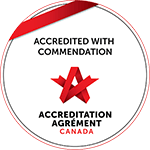
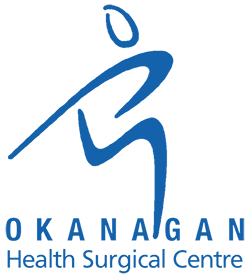
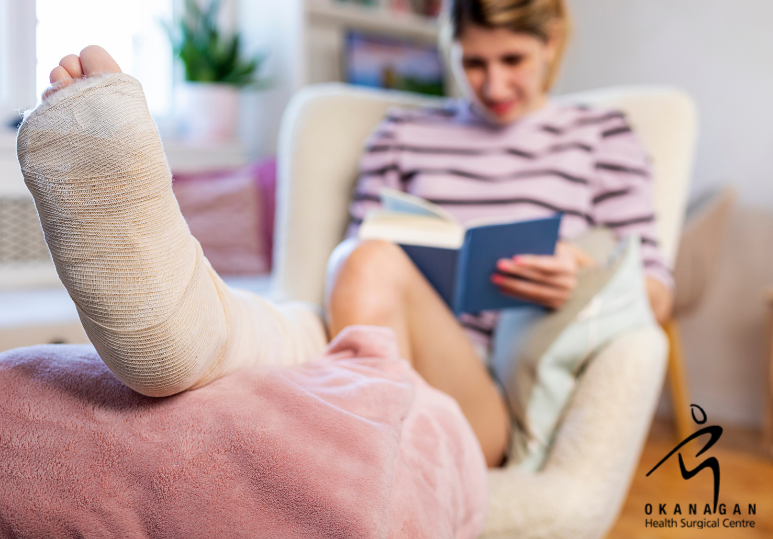
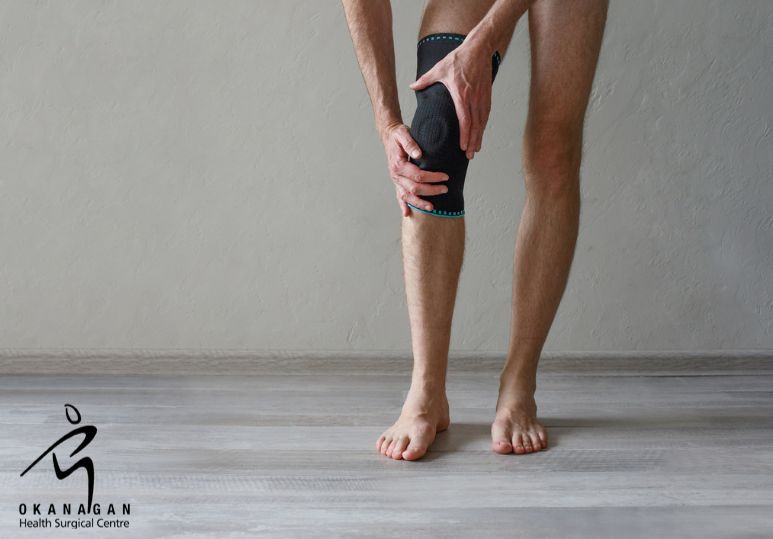

 in Foot and Ankle Procedures.jpg)
.jpg)

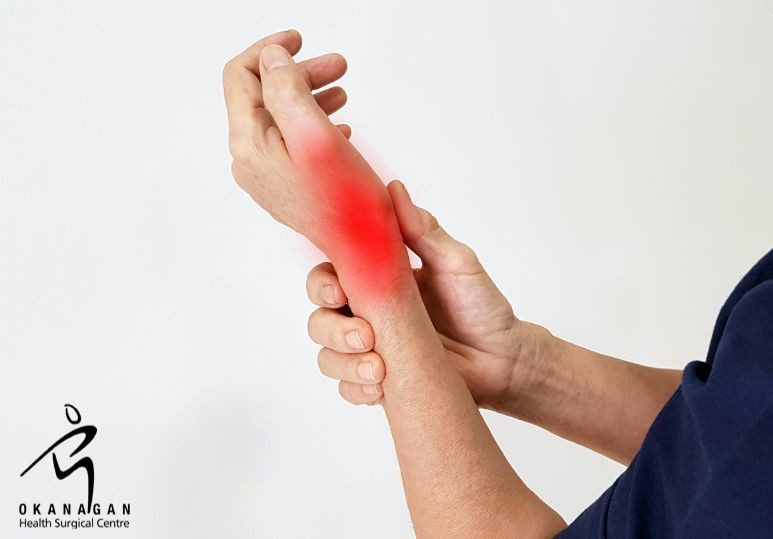



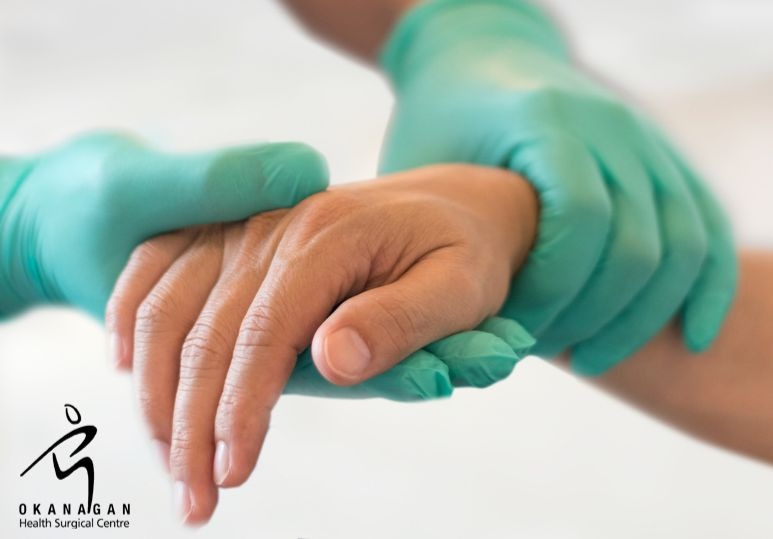



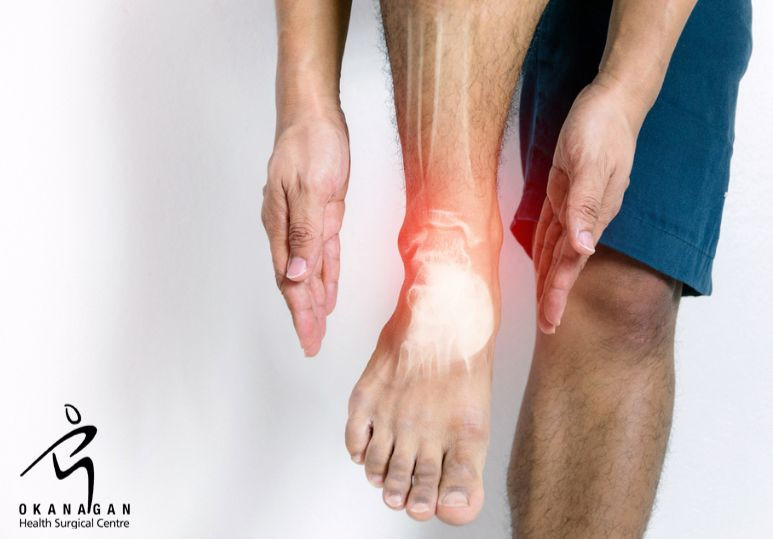
.jpg)
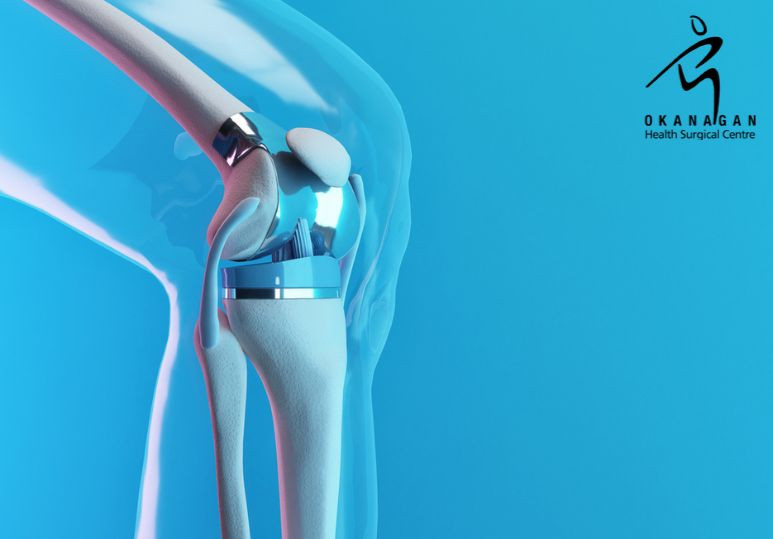

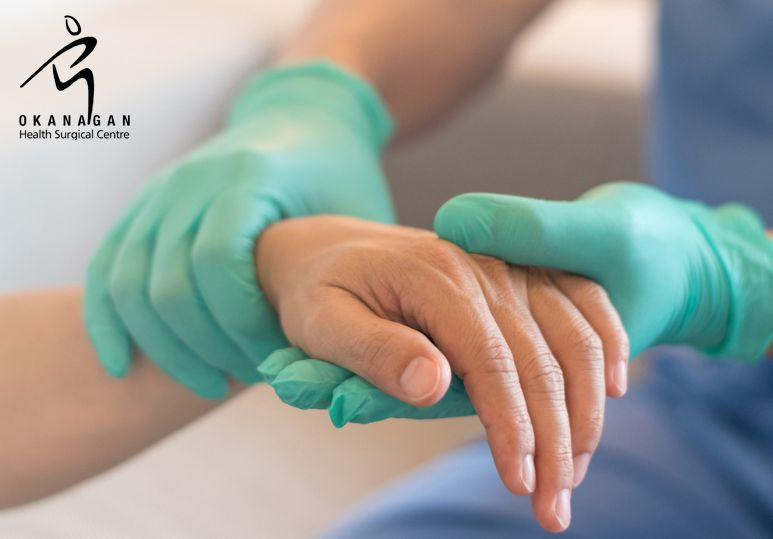

.jpg)
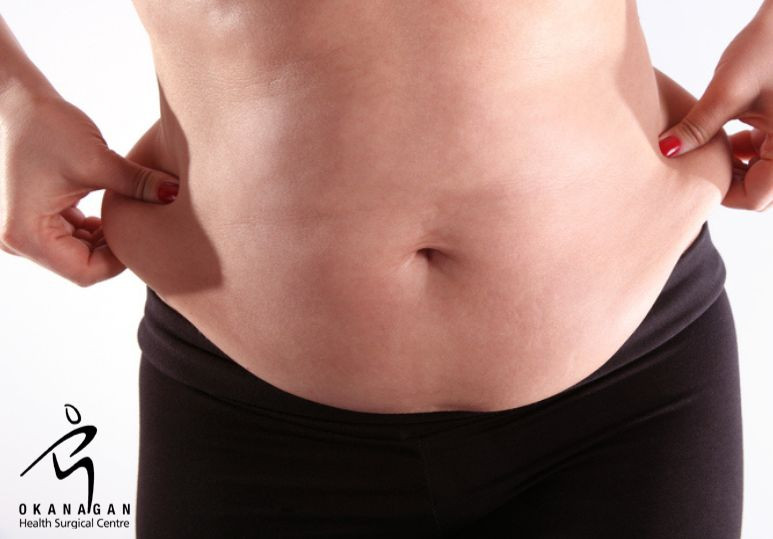
.jpg)

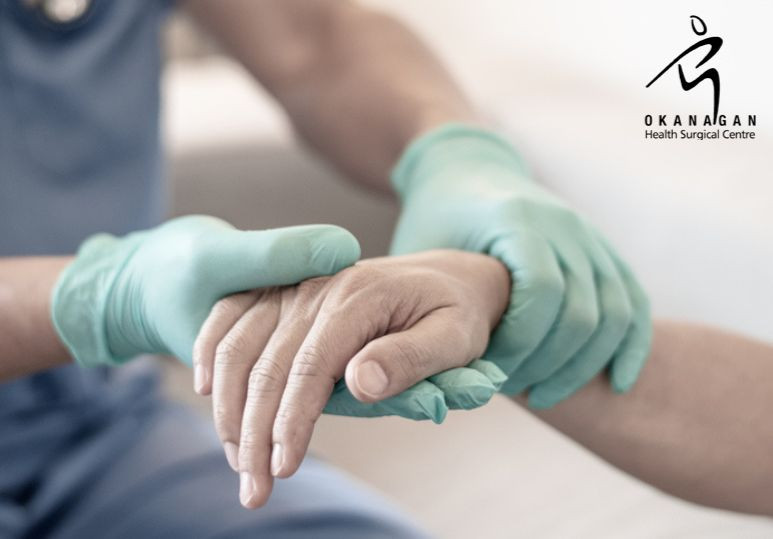
.jpg)
